Winter is here! Check out the winter wonderlands at these 5 amazing winter destinations in Montana
- Travel Tips

What Is Gastronomic Tourism
Published: December 12, 2023
Modified: December 28, 2023
by Jennifer Harman
- Food Travel
- Plan Your Trip
Introduction
Gastronomic tourism, also known as food tourism or culinary tourism, has gained significant popularity in recent years. More than just a way to satisfy our taste buds, gastronomic tourism offers a unique and immersive travel experience centered around the local cuisine of a destination. It involves exploring the food culture, traditions, and culinary heritage of a region, providing travelers with a deeper understanding of the local culture and fostering a connection between people and food.
Food has always been an integral part of travel, but gastronomic tourism takes it to a whole new level. It goes beyond simply trying different dishes or dining at renowned restaurants. Gastronomic tourism invites travelers to engage with the local community, learn about traditional cooking techniques and ingredients, and even participate in hands-on cooking classes.
The rise of gastronomic tourism can be attributed to various factors. Globalization has made it easier for people to explore diverse cuisines from around the world. Additionally, there is a growing interest in sustainable and authentic travel experiences, with travelers seeking to connect with local communities and support local businesses. Gastronomic tourism offers the perfect blend of both, allowing travelers to savor delicious food while also contributing to the local economy.
In this article, we will delve into the world of gastronomic tourism, exploring its definition, historical background, importance, and famous gastronomic destinations. We will also discuss the various types of gastronomic experiences and how culinary tourism can benefit local economies. Furthermore, we will address the challenges associated with gastronomic tourism and highlight sustainable practices that can be implemented to ensure its long-term success.
So, whether you’re a food lover looking to embark on a culinary adventure or a travel enthusiast seeking to immerse yourself in the local culture through food, join us on this gastronomic journey and discover the mouthwatering delights and cultural richness that await!
Definition of Gastronomic Tourism
Gastronomic tourism can be defined as a form of travel that revolves around exploring the culinary traditions and food culture of a particular destination. It involves experiencing and enjoying local delicacies, traditional cooking methods, food markets, vineyards, breweries, and other gastronomic offerings that a region has to offer.
This type of tourism focuses on the gastronomic heritage, which encompasses not just the food itself but also the history, traditions, stories, and rituals associated with it. It is a multi-sensory experience that tantalizes the taste buds, delights the senses, and offers a unique perspective into the local way of life.
Gastronomic tourism goes beyond the act of simply eating. It involves immersing oneself in the culinary scene of a place, exploring the flavors, ingredients, and cooking techniques that make it distinctive. It may include visiting local farms and wineries, attending cooking classes and demonstrations, participating in food festivals and events, and even interacting with local chefs and producers.
One of the key aspects of gastronomic tourism is the emphasis on authenticity. Travelers are drawn to experiences that are genuine, reflecting the true essence of a destination’s culinary traditions. This may involve seeking out family-owned restaurants, street food vendors, or farmers’ markets where local produce is celebrated and cherished.
Moreover, gastronomic tourism also involves discovering the cultural and historical context behind the cuisine. It allows travelers to understand the connection between food and the local community, unraveling the stories and influences that have shaped the culinary landscape of a place.
Ultimately, gastronomic tourism aims to provide travelers with a deeper appreciation and understanding of a destination through its food. It offers a way to connect with the local culture, foster cross-cultural exchanges, and create lasting memories centered around shared meals and culinary adventures.
Historical Background of Gastronomic Tourism
Gastronomic tourism may seem like a modern phenomenon, but its roots can be traced back to ancient times. Food has always played a significant role in human society, and throughout history, people have traveled in search of new and exotic flavors, spices, and culinary experiences.
During the Middle Ages, pilgrims embarked on long journeys to religious sites, and along the way, they would encounter different cuisines and culinary traditions. These encounters sparked curiosity and a desire to explore new tastes and flavors.
In the 18th and 19th centuries, the Grand Tour became popular among aristocrats and wealthy individuals. This cultural and educational trip across Europe was not just about visiting famous landmarks and art galleries but also experiencing the local cuisine. Travelers would indulge in extravagant meals, often prepared by renowned chefs, as a way to showcase their refined tastes and social status.
With the advent of modern transportation and the rise of globalization, the appeal of gastronomic tourism expanded to a wider audience. In the mid-20th century, food and travel writers like Julia Child and Anthony Bourdain popularized the idea of exploring different cuisines and food cultures around the world.
Furthermore, the rise of the Slow Food movement in the 1980s brought attention to the importance of local and sustainable food practices. This movement emphasized the connection between food, culture, and the environment, promoting the appreciation of traditional cooking methods and local ingredients. The Slow Food movement played a significant role in shaping the concept of gastronomic tourism, fueling the demand for authentic culinary experiences.
Today, gastronomic tourism has evolved into a global phenomenon. Travelers from all corners of the world seek out unique and immersive food experiences, whether it’s visiting food markets in Asia, tasting traditional dishes in Europe, or exploring indigenous cuisine in South America.
The advent of social media has also played a crucial role in the growth of gastronomic tourism. Platforms like Instagram have made it easier for travelers to discover and share mouthwatering food photos and recommendations, inspiring others to embark on their own culinary adventures.
Overall, the historical background of gastronomic tourism showcases the long-standing fascination humans have had with food and travel. It highlights the evolution of culinary exploration, from a luxury reserved for the elite to a popular and accessible form of tourism for individuals of all backgrounds.
The Importance of Gastronomic Tourism
Gastronomic tourism holds great significance for both travelers and the destinations they visit. It goes beyond simply satisfying hunger and offers a range of benefits that contribute to the overall travel experience and the local economy.
Firstly, gastronomic tourism provides travelers with a unique and immersive way to connect with a destination’s culture. Food is deeply intertwined with a region’s history, traditions, and way of life. By exploring the local cuisine, travelers gain insight into the customs, values, and social dynamics of a place. It allows for cross-cultural exchanges and a deeper understanding of the local community.
Additionally, gastronomic tourism contributes to the preservation of culinary heritage. As societies modernize, traditional cooking methods and recipes can be at risk of being lost. By supporting local restaurants, food markets, and producers, travelers play a vital role in sustaining and promoting age-old culinary traditions. This helps to protect cultural diversity and ensure the survival of culinary techniques and ingredients that have been passed down through generations.
Gastronomic tourism is also an economic driver for destinations. It generates revenue for local businesses, including restaurants, cafes, food markets, and small-scale producers. By attracting food-loving travelers, destinations can support local entrepreneurs and contribute to the growth of the local economy. This, in turn, can create jobs, boost entrepreneurship, and enhance the overall well-being of the community.
Moreover, gastronomic tourism has the power to foster sustainable practices. Travelers are increasingly seeking out environmentally-friendly and socially responsible experiences. Local and sustainable food systems can help reduce the carbon footprint associated with food production and transportation. By supporting farm-to-table initiatives, organic farming, and fair trade practices, gastronomic tourism promotes a more sustainable and ethical approach to food consumption.
Furthermore, gastronomic tourism has the potential to promote cultural exchange and break down stereotypes. Food has a universal language, and through culinary experiences, travelers can develop a greater appreciation and respect for different cultures and traditions. Sharing a meal with locals provides a platform for dialogue, building bridges between people from diverse backgrounds.
In summary, gastronomic tourism is important for its ability to facilitate cultural connections, preserve culinary heritage, stimulate economic growth, promote sustainable practices, and foster cross-cultural understanding. It enriches the travel experience, leaving a lasting impact on both travelers and the destinations they visit.
Famous Gastronomic Destinations
When it comes to gastronomic tourism, there are several destinations around the world that have gained fame for their culinary offerings. These places not only tantalize the taste buds but also provide a rich and diverse food culture for travelers to explore. Here are some of the most famous gastronomic destinations:
- Paris, France : Known as the gastronomic capital of the world, Paris offers a wide range of culinary delights. From traditional French cuisine to Michelin-starred restaurants, travelers can indulge in mouthwatering pastries, exquisite cheeses, and sumptuous dishes like coq au vin and boeuf bourguignon.
- Tokyo, Japan : Tokyo boasts a vibrant and diverse food scene. From street food stalls to high-end sushi restaurants, the city offers an array of flavors and regional specialties. Travelers can savor sushi, ramen, tempura, and experience the unique dining style of izakayas.
- Bologna, Italy : Bologna is known as the gastronomic capital of Italy. It is famous for its rich pasta dishes like tortellini and tagliatelle al ragù. The region is also renowned for its Parmigiano Reggiano cheese, balsamic vinegar, and cured meats like prosciutto di Parma.
- Mexico City, Mexico : Mexican cuisine is celebrated globally, and Mexico City is the perfect place to indulge in its flavors. From mouthwatering tacos and tamales to vibrant salsas and mole sauces, travelers can embark on a culinary adventure to discover the authentic taste of Mexico.
- Bangkok, Thailand : Bangkok’s street food scene is legendary. Travelers can explore bustling night markets and sample an abundance of delicious and spicy Thai dishes like pad thai, green curry, and tom yum soup. The blend of sweet, sour, salty, and spicy flavors creates an explosion of taste.
These are just a few examples of the countless gastronomic destinations around the world. Each place has its own unique flavors, culinary traditions, and local specialties to offer. Whether it’s the sushi in Japan, the pasta in Italy, or the street food in Thailand, these destinations provide an unforgettable gastronomic experience that allows travelers to truly savor the essence of a place.
Types of Gastronomic Experiences
Gastronomic tourism encompasses a variety of experiences that cater to different tastes and preferences. Whether exploring local markets, dining at renowned restaurants, or participating in food-related activities, travelers have a range of options to indulge in their culinary desires. Here are some of the types of gastronomic experiences that you can enjoy:
- Food Tours: Food tours are a popular way to explore a destination’s culinary scene. These guided tours take travelers to local eateries, markets, and food stalls, allowing them to sample a variety of dishes and learn about the cultural and historical significance of the food.
- Cooking Classes: Participating in cooking classes provides a hands-on experience that allows travelers to learn about local ingredients, traditional recipes, and cooking techniques. From making pasta in Italy to preparing sushi in Japan, these classes offer a deeper understanding of the cuisine and a chance to recreate the flavors at home.
- Wine and Beer Tastings: Wine and beer tastings offer an opportunity to explore the world of alcohol and its pairing with food. Travelers can visit vineyards, breweries, and wineries, where they can sample a variety of wines and beers while learning about the production process and the characteristics of different varieties.
- Farm Visits: Visiting farms allows travelers to witness firsthand the process of food production. They can learn about sustainable farming practices, interact with farmers, and taste freshly harvested produce. Farm visits provide a deeper appreciation for where our food comes from and the effort involved in its cultivation.
- Food Festivals and Events: Food festivals and events are an excellent way to immerse oneself in the local culinary culture. These gatherings feature a variety of food vendors offering a range of dishes, live demonstrations, and performances. From street food festivals to gourmet food and wine events, there is something for everyone.
These are just a few examples of the types of gastronomic experiences available to travelers. Each destination will have its own unique offerings, allowing you to tailor your food journey to your interests and preferences. Whichever experience you choose, gastronomic tourism offers a chance to engage with the local food culture, enhance your culinary knowledge, and create lasting memories centered around food and its connections to a place’s identity.
Culinary Tourism and Local Economy
Culinary tourism has a significant impact on the local economy of a destination. By attracting food-loving travelers, culinary tourism generates revenue for various sectors and contributes to the socio-economic development of the community.
Firstly, culinary tourism creates employment opportunities. Restaurants, cafes, food markets, and culinary schools require skilled workers to cater to the needs of travelers. This supports the local workforce by providing job opportunities and promoting professional growth in the hospitality and food service industries. Additionally, as the demand for culinary experiences increases, there is a need for local guides, food tour operators, and cooking instructors, further boosting the job market.
Moreover, culinary tourism stimulates the growth of small businesses. Local food producers, artisanal shops, and farmers’ markets benefit from increased visibility and demand. Travelers seek out unique and authentic products, supporting local businesses and contributing to the livelihood of small-scale producers. This promotes entrepreneurship, diversifies the economy, and enhances the sustainability of the local food industry.
In addition to direct economic benefits, culinary tourism has a ripple effect on other sectors. It supports the tourism industry as a whole, including accommodation providers, transportation services, and tour operators. The increased visitor numbers and longer stays by culinary tourists bring economic opportunities to various stakeholders in the tourism ecosystem.
Furthermore, culinary tourism often involves the use of local and regional ingredients, promoting the agricultural sector. This encourages farmers to grow diverse crops and supports sustainable farming practices. By sourcing ingredients locally, culinary tourism reduces the carbon footprint associated with food transportation and supports the local food ecosystem.
Another aspect of culinary tourism’s impact on the local economy is the possibility of establishing culinary networks and collaborations. By creating connections between local chefs, producers, and entrepreneurs, culinary tourism fosters innovation and creativity. Collaboration can lead to the development of new culinary products, the revitalization of traditional recipes, and the sharing of knowledge and resources. These collaborations contribute to the growth of the local culinary scene and enhance its reputation on a regional and global scale.
In summary, culinary tourism plays a vital role in the local economy of a destination. By attracting food-loving travelers, it generates employment opportunities, supports small businesses, stimulates the agriculture sector, and benefits various sectors within the tourism industry. Culinary tourism not only satisfies the taste buds of travelers but also contributes to the economic growth and sustainability of the local community.
Benefits and Challenges of Gastronomic Tourism
Gastronomic tourism brings a multitude of benefits to travelers and destinations alike. However, it also poses certain challenges that need to be addressed for its successful and sustainable implementation. Let’s explore the benefits and challenges of gastronomic tourism:
- Cultural Exchange: Gastronomic tourism promotes cultural exchange and understanding. Travelers have the opportunity to explore different cuisines, culinary traditions, and food rituals, fostering cross-cultural connections and breaking down stereotypes.
- Economic Impact: Gastronomic tourism generates revenue for the local economy by supporting local businesses, creating jobs, and stimulating entrepreneurship. It also promotes the growth of small-scale producers and contributes to the sustainability of the local food industry.
- Culinary Preservation: Gastronomic tourism plays a crucial role in preserving culinary heritage. By supporting traditional cooking methods and local ingredients, it helps to sustain cultural diversity and ensure the survival of age-old recipes.
- Sustainable Practices: Gastronomic tourism can promote sustainable practices by encouraging the use of local and seasonal ingredients, reducing food waste, and supporting organic and fair trade initiatives. It raises awareness about the environmental and social impact of food consumption.
- Enhanced Travel Experience: Gastronomic tourism enhances the travel experience by offering unique and immersive activities such as culinary tours, cooking classes, and food festivals. It provides a deeper understanding of the local culture and traditions through the lens of food.
Challenges:
- Authenticity: Maintaining authenticity is a challenge in gastronomic tourism. As the demand for immersive experiences grows, there is a risk of commercialization and the dilution of traditional cuisines and food practices. Care must be taken to ensure that the experiences offered are genuine and respectful of local cultures.
- Sustainability: Achieving sustainable gastronomic tourism practices can be challenging. This includes addressing issues such as food waste management, promoting sustainable farming practices, and reducing the carbon footprint associated with food production and transportation.
- Quality Control: Maintaining quality control in the gastronomic tourism industry is essential. It requires ensuring that restaurants, food vendors, and culinary experiences meet certain standards of hygiene, safety, and taste. Regular inspections and certifications can help maintain quality.
- Seasonality: The availability of certain ingredients can be influenced by seasonal variations. This can pose challenges for culinary tourism, as travelers may have specific expectations for certain dishes or ingredients. Addressing this challenge requires effective menu planning and promotion of local seasonal specialties.
- Tourist Pressure: The popularity of gastronomic tourism can lead to an influx of tourists in certain areas, causing overcrowding and putting strain on local resources. Destination management strategies should be in place to address overtourism and ensure a sustainable balance between visitor numbers and infrastructure capacity.
Gastronomic tourism offers numerous benefits, from cultural exchange to economic growth. However, it also requires careful management to overcome challenges such as maintaining authenticity, ensuring sustainability, and managing tourist pressure. By addressing these challenges, gastronomic tourism can continue to thrive as a vibrant and enriching form of travel.
Sustainable Gastronomic Tourism Practices
Sustainable gastronomic tourism practices are crucial for preserving the environment, supporting local communities, and ensuring the long-term success of culinary tourism. Here are some sustainable practices that can be implemented:
- Supporting Local and Sustainable Food Systems: Emphasize the use of local and seasonal ingredients in culinary experiences. This supports local farmers and reduces the carbon footprint associated with food transportation.
- Reducing Food Waste: Implement measures to minimize food waste, such as portion control, implementing composting programs, and promoting the use of food leftovers creatively, such as in new dishes or for donation to food banks.
- Promoting Responsible Seafood Consumption: Encourage the consumption of sustainably sourced seafood. This includes avoiding endangered species, supporting responsible fishing practices, and promoting sustainable aquaculture.
- Supporting Local Food Producers: Collaborate directly with local producers, such as farmers, fishermen, and artisanal food producers. This not only supports the local economy and promotes traditional practices but also ensures the use of high-quality and authentic ingredients.
- Engaging in Fair Trade Practices: Choose suppliers and vendors that follow fair trade practices, ensuring that farmers and producers receive fair wages and work in safe and humane conditions.
- Minimizing Plastic Usage: Limit the use of single-use plastics in culinary experiences. Provide reusable or biodegradable alternatives for packaging and avoid plastic straws and utensils.
- Engaging in Responsible water consumption: Encourage responsible water usage in culinary establishments. This includes minimizing water waste during food preparation and using water-efficient appliances.
- Supporting Local Food Traditions: Celebrate and promote local food traditions through culinary events and festivals. This helps to preserve cultural heritage and provides opportunities for local communities to benefit economically.
- Education and Awareness: Educate both travelers and locals about the importance of sustainable gastronomic practices. This can be done through workshops, seminars, and interactive experiences that highlight the environmental and social impact of food consumption.
- Collaboration and Knowledge Sharing: Foster collaboration among stakeholders involved in gastronomic tourism, including chefs, producers, and government entities. Sharing knowledge and best practices can lead to innovative solutions and the continuous improvement of sustainable gastronomic tourism.
By implementing these sustainable practices, gastronomic tourism can contribute to the conservation of the environment, support local communities, and provide travelers with meaningful and responsible culinary experiences. It ensures that future generations can continue to enjoy the diverse flavors, traditions, and cultural richness that gastronomic tourism offers.
Gastronomic tourism has transformed the way we travel, offering a unique and immersive experience centered around local cuisine. It goes beyond satisfying our taste buds and provides an opportunity to explore culinary traditions, connect with local communities, and gain a deeper understanding of different cultures.
Throughout history, food has played a significant role in human society, and gastronomic tourism builds upon this long-standing fascination. It allows travelers to embark on culinary adventures, indulge in diverse flavors, and discover the stories, traditions, and techniques that have shaped the food culture of a destination.
Gastronomic tourism brings with it a multitude of benefits. It promotes cultural exchange, supports local economies, preserves culinary heritage, and stimulates sustainable practices. From supporting local farmers and producers to reducing food waste and promoting fair trade, gastronomic tourism has the power to make a positive impact on both the environment and the communities it touches.
However, the success of gastronomic tourism also relies on addressing various challenges. Ensuring authenticity, practicing sustainability, and managing the impact of tourist pressure are crucial for the long-term viability of this form of tourism. By implementing sustainable gastronomic practices and fostering collaboration among stakeholders, these challenges can be overcome.
In conclusion, gastronomic tourism offers a gateway to explore the world through food. It tantalizes our senses, broadens our horizons, and fosters a deeper connection to the places we visit. By embracing gastronomic tourism and implementing sustainable practices, we can create a positive and lasting impact on the environment, local economies, and cultural heritage. So, pack your taste buds, embark on a culinary adventure, and savor the delights that gastronomic tourism has to offer!

- Privacy Overview
- Strictly Necessary Cookies
This website uses cookies so that we can provide you with the best user experience possible. Cookie information is stored in your browser and performs functions such as recognising you when you return to our website and helping our team to understand which sections of the website you find most interesting and useful.
Strictly Necessary Cookie should be enabled at all times so that we can save your preferences for cookie settings.
If you disable this cookie, we will not be able to save your preferences. This means that every time you visit this website you will need to enable or disable cookies again.

THE WORLD'S LEADING AUTHORITY
On food & beverage tourism.
DESTINATION DEVELOPMENT | EVENTS | EDUCATION | RESEARCH | THOUGHT LEADERSHIP | AWARDS | COMMUNITY
We're the world's oldest and largest organization focused on the development and promotion of food and beverage tourism (a.k.a. culinary tourism and gastronomy tourism). We work with destination marketers and their stakeholders to facilitate the discovery and appreciation of unique culinary cultures by travelers.
How can we help your destination, organization or business?
Here are three quick suggestions.
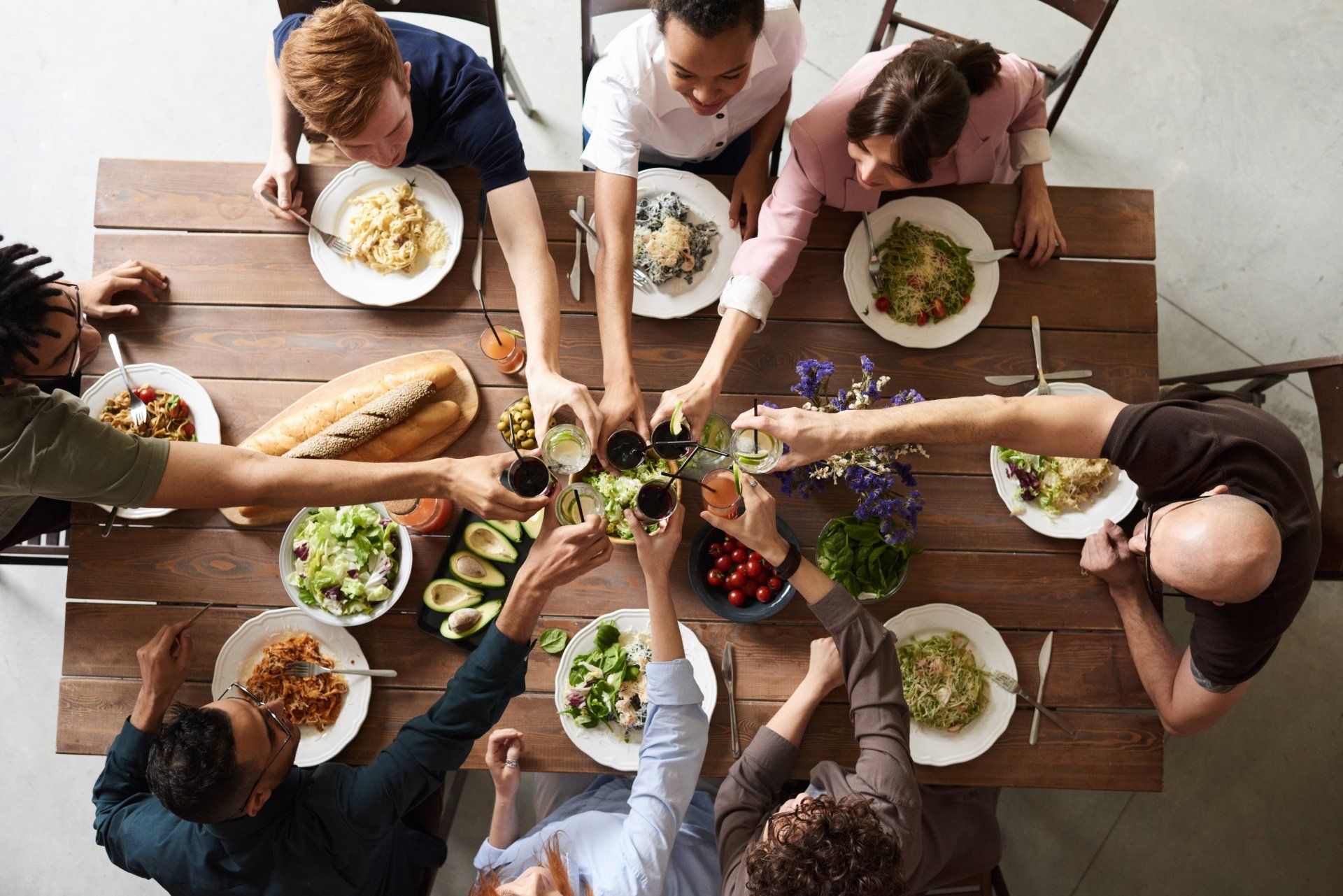
Join our GastroTerra community today.
Our official B2B community and the best place to connect, explore, share, and get inspired by everything related to food and beverage tourism (a.k.a. culinary tourism & gastronomy tourism).
What is food tourism?
"The act of traveling for a taste of place in order to get a sense of place." ™
AS FEATURED IN & ON

Our 20+ years experience with the food & beverage tourism industry gives us an undisputed edge to identify economic opportunities where food and beverage meet travel and hospitality.
Our knowledge, tools and training help trade professionals like you and organizations like yours to leverage your area's culinary culture and heritage to create a stronger sense of place, which:
- increases visitor arrivals;
- increases your destination's brand equity;
- enhances local pride;
- generates export demand for your area's food and beverage products; and
- creates a significant economic impact on the area.
Read Our Latest News
Click any image to read the full article. Don't see any images below? Turn off your ad blocker and reload the page.
Find More Articles in our Association News Archive Here
Trusted by the World’s Leading Companies in Food and Travel
The world food travel association crafts resources, knowledge & opportunities for industry leaders.

Our mission is to preserve and promote culinary cultures and culinary heritage in the visitor experience.
© World Food Travel Association | All rights reserved.
Terms & Conditions | Privacy Policy
Pages not loading correctly? We do not recommend Safari. Our website works best with Edge, Opera, Chrome, Brave or Firefox.

What is Culinary Tourism? Exploring Culture Through Food

As an Amazon Associate I earn from qualifying purchases. Please read the disclaimer for more info.
What is culinary tourism? Also known as food tourism or gastronomy tourism, it is all about exploring a destination through its flavors. It’s a way to get a taste—quite literally—of a place’s cultural and culinary identity.
When you decide to take a trip based on the foods and beverages that a region is known for, you’re diving into a delicious realm of travel that satiates more than just your appetite. It’s a sensory adventure where your taste buds lead the way as you discover local dishes, traditional techniques, and the stories behind every bite.
Imagine yourself wandering through vibrant street markets, sampling exotic spices, or sitting at a table with locals enjoying a home-cooked meal.
Culinary tourism unfolds in cooking classes, wine tastings, and farm-to-table experiences. It’s a chance for you to connect with a region’s history, people, and traditions.
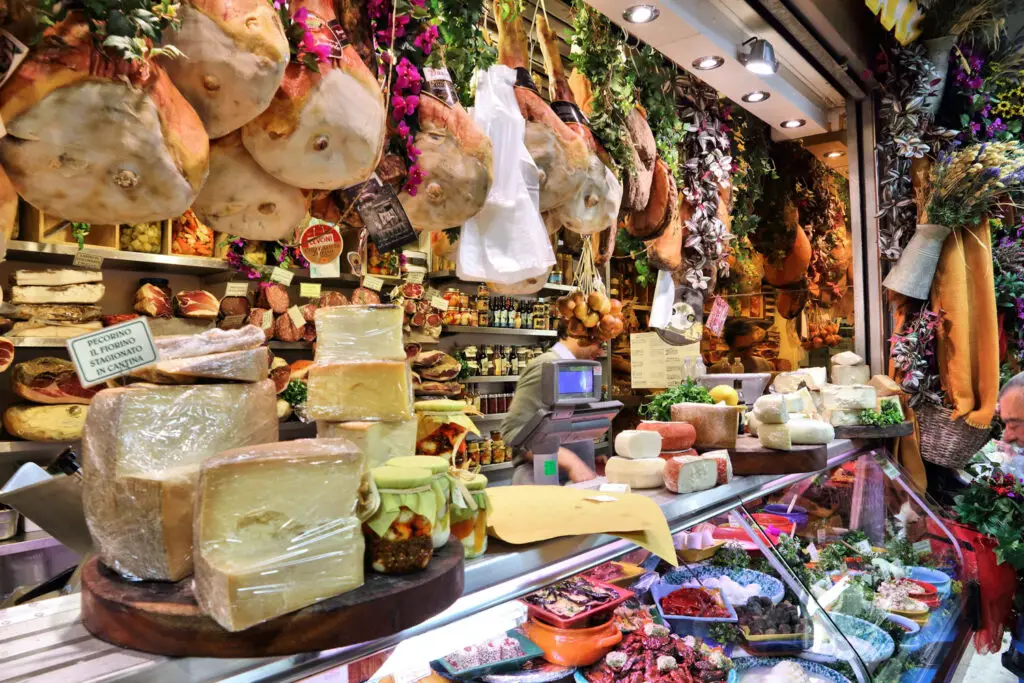
You don’t need to be a food expert to indulge in culinary tourism; all you need is curiosity and an appreciation for good food. As you plan your next getaway, why not let your cravings be your compass and turn each meal into an opportunity to create unforgettable memories?
What sets culinary tourism apart is its participatory nature. You’re not just eating; you’re engaging with the food landscape, meeting producers, chefs, and fellow food lovers.
This kind of travel encourages immersive experiences, such as picking fresh ingredients at an organic farm or learning to make pasta in an Italian grandmother’s kitchen. The stories and skills you bring back from your journey become souvenirs that last a lifetime.
Whether it’s savoring a new taste or understanding the intricate process of making traditional dishes, culinary tourism offers an authentic slice of life wherever you go.
Explore Italy as a food destination: 10 Best Italian Cooking Vacations 2024: Buon Appetito .
Exploring Culinary Tourism
Culinary tourism is about pursuing unique and memorable eating and drinking experiences. Whether you’re munching on local street food in Mexico or enjoying a fine dining experience in Paris, you’re participating in a flavorful journey.
Definition and Scope
Culinary tourism, also known as food tourism or gastronomy tourism, taps into the desire to explore a culture through its flavors. Your culinary adventures can range from local cooking courses to winery tours, encompassing any travel experience where the primary goal is to discover new tastes and food traditions.
According to the World Food Travel Association , this form of tourism is not limited to gourmet food but includes a complete range of experiences.
History and Evolution
The concept of traveling to various destinations to experience the food they offer has historical roots.
Over time, it’s evolved from leisurely aristocratic tours of the 19th century, focusing on European haute cuisine, to a much broader scope today. You’ve got food bloggers, TV shows, and festivals that further popularize this form of tourism, making it accessible to food tourists of all types seeking a taste of authenticity.
Types of Culinary Tourism
You’ll find a delectable array of culinary tourism types to satisfy your appetite for adventure:
- Food Festivals: A chance to try a variety of dishes at one go, usually themed around specific types of food or cultures.
- Cooking Classes: Hands-on opportunities to learn the intricacies of a region’s cuisine.
- Restaurant Tours: Guided tours focusing on a series of eateries known for authentic and innovative culinary creations.
- Street Food Tours: Dive into the heart of the city’s food scene with a food tour dedicated to street food.
- Winery/Brewery/Distillery Visits: Explore the world of drinks from production to the first sip.
- Farm or Market Tours: Get a fresh perspective by tracing the journey of ingredients from source to plate.
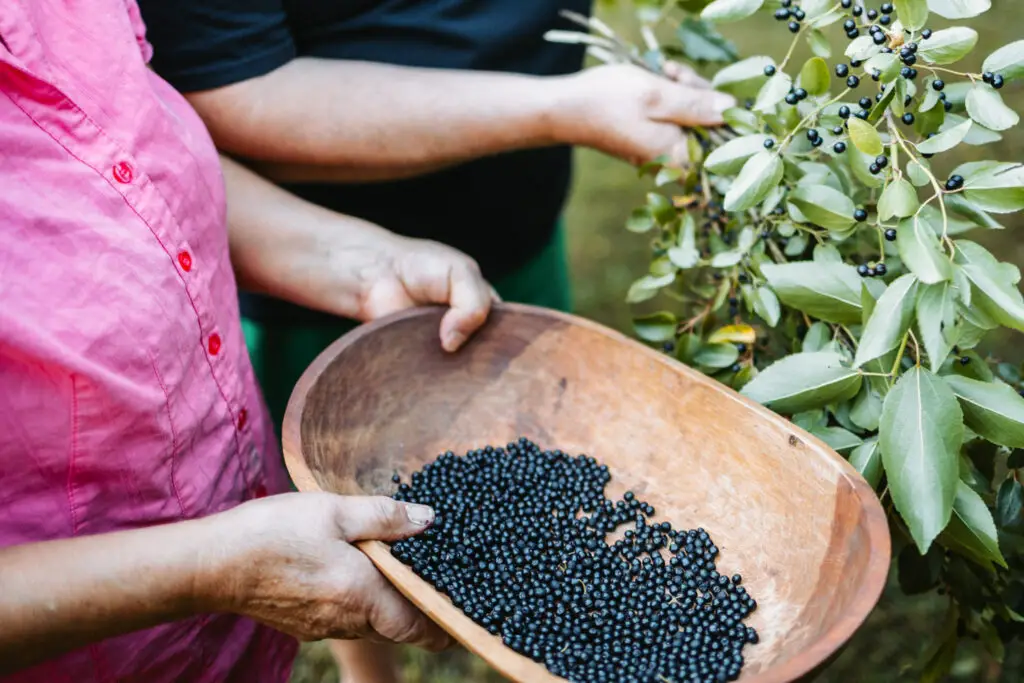
The Culinary Tourism Experience
Culinary tourism spotlights the delicious intersection between exploring new destinations and savoring their unique food offerings. Your journey will lead you to taste the essence of the region’s culture and history expressed through its cuisine.
Savoring Local Flavors
Immerse yourself in the rich tapestry of local gastronomy by indulging in regional specialties. Authenticity is emphasized, whether it’s a street food stall serving fresh, spicy tacos or a renowned restaurant famed for its delicate pastries. You’ll uncover the heart of your destination’s culinary identity, from traditional dishes passed down through generations to contemporary interpretations that fuse different cultural influences.
- Local Specialties : Tasting iconic regional dishes.
- Seasonal Offerings : Enjoying food made from ingredients at their peak.
- Distinctive Food : Discovering what sets the local cuisine apart.
Culinary Tours and Activities
Get a taste of the local scene through organized food tours . These guided experiences often include a curated selection of eateries, each chosen to represent a facet of the culinary landscape. From bustling markets to high-end bistros, you’ll gain an overview of the destination’s dining spectrum. And don’t miss out on the chance to attend cooking classes , where you can don an apron and learn to recreate the flavors of your travels in your own kitchen.
- Food Tours : A guided tour through diverse culinary stops.
- Cooking Classes : Hands-on learning to prepare local dishes.
- Market Visits : Experiencing the hub of local food culture.
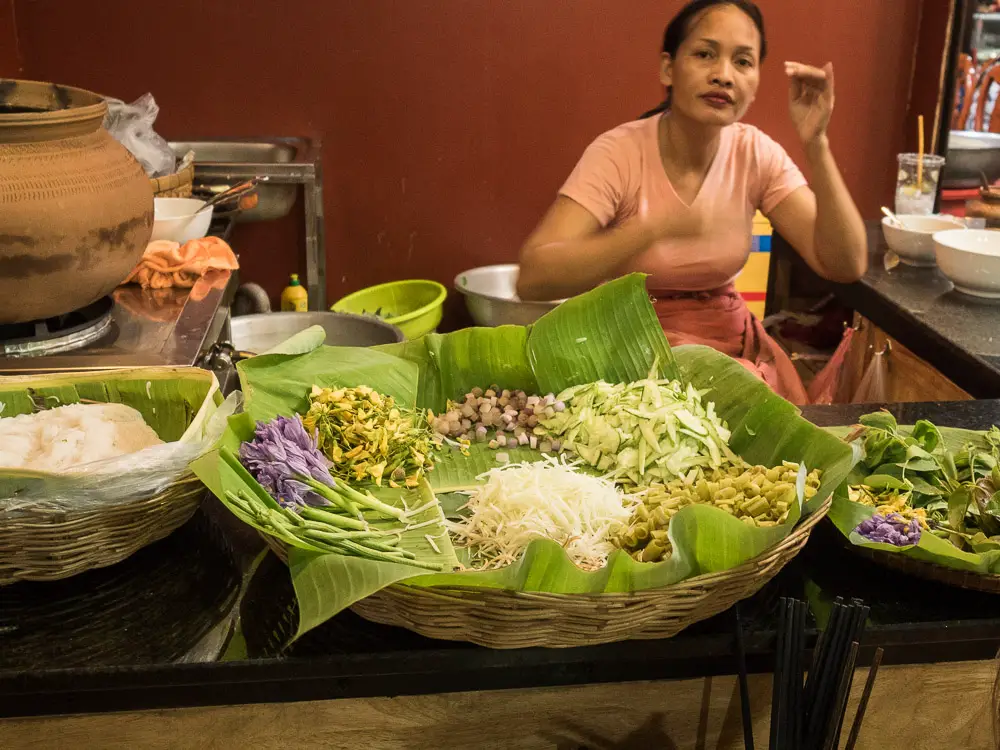
Interactive Food Experiences
Step into an interactive realm where you’re more than just a spectator. Engage with local chefs during cooking classes as they share their secrets and techniques. Pull up a chair at communal tables where meals are shared and stories told, or roll up your sleeves to participate in a cooking workshop. Throughout these experiences, the dynamic of food and drink intertwines with education and community, offering you a deeper connection to the locale.
- Chef-Led Workshops : Deep dives into culinary crafts.
- Tasting Sessions : Sampling a variety of local offerings.
- Food Festivals : Celebrating with fellow food enthusiasts.
Economic and Social Aspects
Food tourism plays a crucial role in shaping destinations’ economic and social landscapes. Tourists contribute significantly to the area’s financial well-being by indulging in local cuisine.
Local businesses, including restaurants and farms, benefit directly from travelers seeking authentic dining experiences, leading to job creation and community development.
In addition to economic impacts, culinary tourism encourages sustainable practices within the food tourism industry. Destinations frequently promote locally grown and harvested foods, which reduces long-distance transportation and minimizes consumption’s carbon footprint.
Moreover, culinary tourism fosters community and cultural connections. Sharing a meal opens doors to understanding the local culture and strengthens bonds within the community.
Global and Regional Cuisines
Exploring the world through taste lets you experience the heart of a culture. Each region’s unique flavors and cooking traditions are showcased in their cuisine, which is often a point of pride.
When you set off on a culinary adventure, you’re not just trying new foods; you’re literally tasting the culture’s history and geography on a plate. Cuisine transforms into an edible map where regional specialties provide a sense of taste of place . For instance:
- Italy : Think beyond spaghetti. Each region boasts its own signature, like the creamy risottos of the north and the zestier, olive-oil-rich dishes of the south.
- Japan : It’s not just sushi and ramen. Delicate flavors and meticulous presentation reflect the country’s aesthetic and philosophical ideals.
- Mexico : Dive into the tapestry of Mesoamerican and European influences with dishes ranging from the complex Oaxaca moles to the coastal areas’ fresh seafood ceviches.
- France: Its cuisine is a cornerstone of the world’s fine dining. From classic sauces to perfectly-executed tartes, you’ll enjoy the artistry of French cooking.
Educational Aspects

Exploring the educational aspects of culinary tourism, you’ll have the opportunity to expand your knowledge and skills in food preparation and production. Through hands-on experiences and expert insights, you’ll get an in-depth look at the culinary world.
Culinary Workshops and Cooking Classes
You’re in for a treat with culinary workshops and cooking classes where professional chefs share their secrets. You’ll learn:
- Techniques : Master the art of slicing, dicing, and sautéing.
- Recipes : Take home new recipes to impress friends and family.
- Presentation : Discover the importance of plating for a visual feast.
Brewery and Winery Tours
Next up, brewery and winery tours allow you to dive into the beverage industry. You’ll experience:
- Processes : Understand the steps of brewing beer or crafting wine.
- Tastings : Develop your palate through guided tastings.
- Pairings : Find out the art of pairing drinks with food.
Learning About Agriculture and Local Produce
During your journey, paying a visit to farms or markets lets you appreciate agriculture and local produce . Here’s what’s on the menu:
- Farming Methods : Gain insight into organic and sustainable practices.
- Local Ingredients : Discover the freshest, locally sourced ingredients.
- Seasonality : Learn how to cook with the seasons for optimal flavor.
In conclusion, culinary tourism is more than just indulging in a region’s food and drink; it’s about immersing oneself in the local people’s culture, traditions, and lifestyle.
Whether you’re tasting a farm-to-table meal in a rural setting or savoring a gourmet dish in a city’s bustling heart, you’re participating in a global phenomenon that fosters sustainability, boosts local economies, and deepens cultural connections.
So, the next time you ask yourself, “What is Culinary Tourism?” remember that it’s an adventure of taste that connects us to the heart of a destination and its people, making travel experiences truly unforgettable.
- 7 Best Tuscany Cooking Vacations 2024: A Taste of Tuscany
- 10 Best Cooking Classes in Rome for Italian Cuisine Lovers
Post a Comment Cancel Comment
Your email address will not be published. Required fields are marked *
Notify me of follow-up comments by email.
Notify me of new posts by email.
This site uses Akismet to reduce spam. Learn how your comment data is processed .

How to Plan a Food Trip
Close your eyes. Think about your favourite city or place to visit. Now, imagine a food you love passionately. I’m sure you smiled! That’s it, eating and travelling are things that really move us. Well, that is what Food Travel means. Is there a better thing than to combine these two passions in a culinary trip?
What is Food Travel
Food Travel means moving around with the aim of exploring a destination gastronomic offer . Exploring the pleasures of the table has always been associated with moments of leisure, but on a gastronomic trip, the culinary experience is no longer just a complement but the main motivation in choosing a destination and in the way of exploring it .
In general, it means travelling to do food tourism , which we define as follows:
Food tourism is composed of activities that provide experiences of consumption and appreciation of food and beverages, presented in such a way that value the history, the culture and the environment of a particular region. by Food’n Road
Why Food Travel?
What we want to highlight is that, in practice, when we combine travel with gastronomy, there is a whole set of experiences and learnings about the history, traditions, environment and local culture that go beyond taste. Realizing this is life-changing!
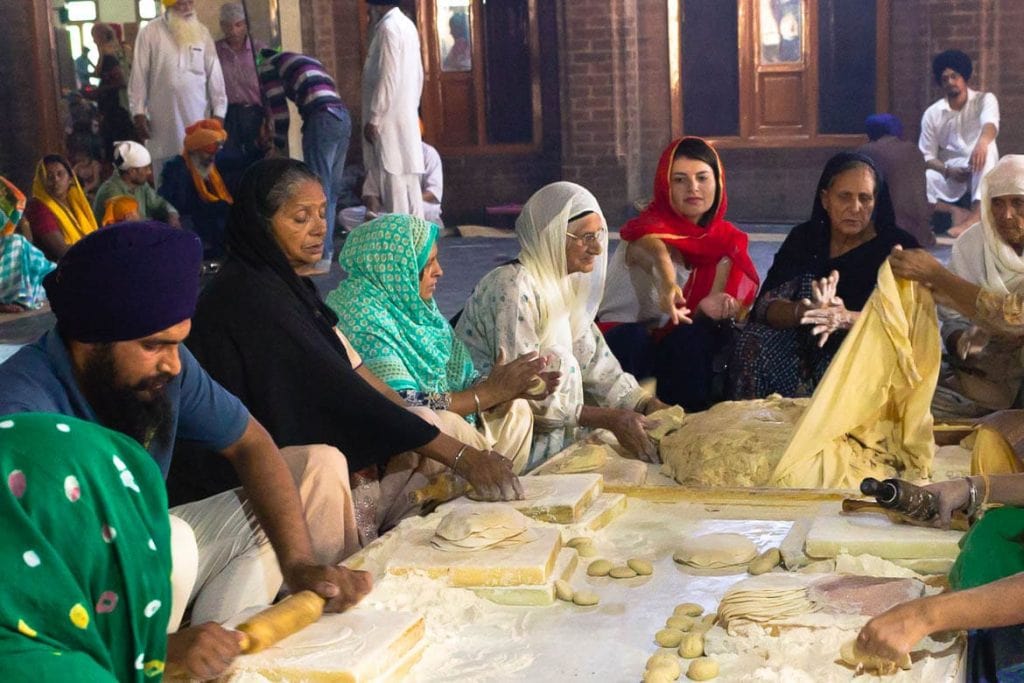
Food and Travel, an experience we never forget
On a trip, we want to have different experiences from our daily lives. These experiences become remarkable when you feel connected with them. That’s exactly how food plays its role.
The bond with food is a universal language, after all, no matter where you came from, food is certainly part of your history. That is why every travel memory always comes with a flavour .
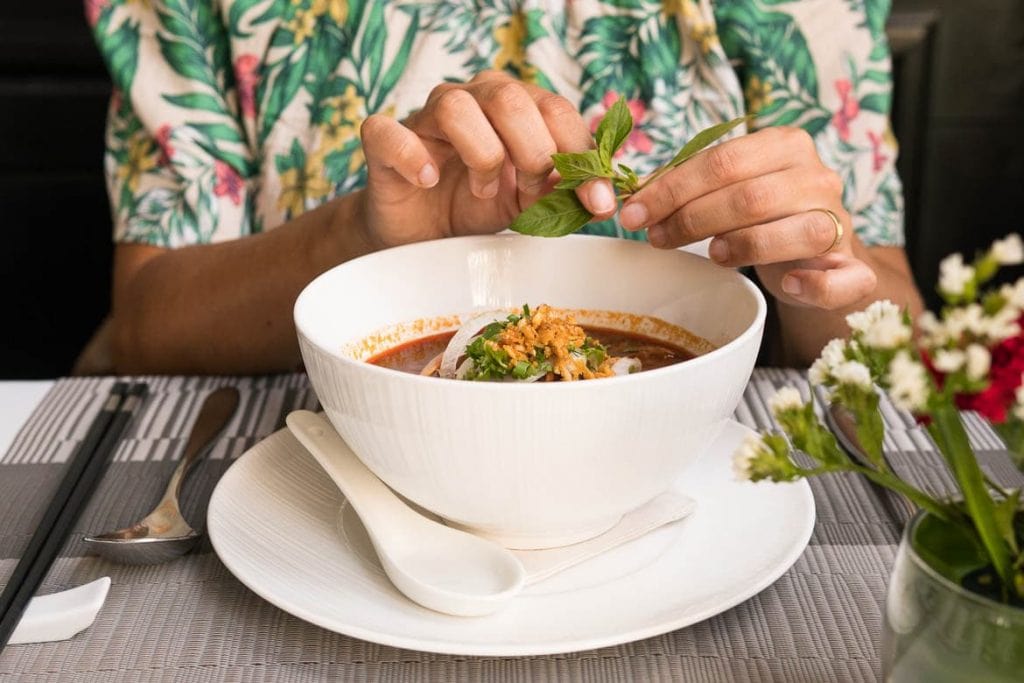
The experience is for everyone
It is a mistake to think that this type of trip is only for those who like to (and can) eat in renowned restaurants, or visit expensive wineries. The food tourism industry is creative and aware of the interests of travellers.
Best of all, it is a democratic and flexible way of travelling. Nowadays, you can easily explore a gastronomic culture in different ways: in the countryside or in the city, individually or in groups, with luxury, with adventure. There is a broad range of options for all budgets and tastes.
We should not fail to mention that technology has also helped a lot of people who are looking for food experiences during a trip. Today, you can easily find online restaurant reviews, menu translation, independent guides, local dining platforms, and more.
For example, how about including a cooking class on your next trip? In addition to having fun while learning traditional dishes, you can cook these dishes when you return home, and remember the trip while sharing the experience with friends and family.
Want more ideas? Check out the list below with some examples of what to do on a culinary trip .
Activities in Food Tourism:
- Take a street food tour;
- Tasting of local dishes and beverages;
- Follow regional product routes (e.g. travel on wine or coffee routes);
- Eat at traditional restaurants;
- Share meals with local people;
- Participate in culinary events and festivals;
- Visit local markets;
- Learn about the production of food by visiting farms and artisan producers;
- Participate in cooking classes;
- Visit exhibitions that explain the history of local cuisine;
- Culinary expeditions with chefs and specialists.
If you want to understand each of these activities in detail, we have written another article that explains the main activities of food tourism .
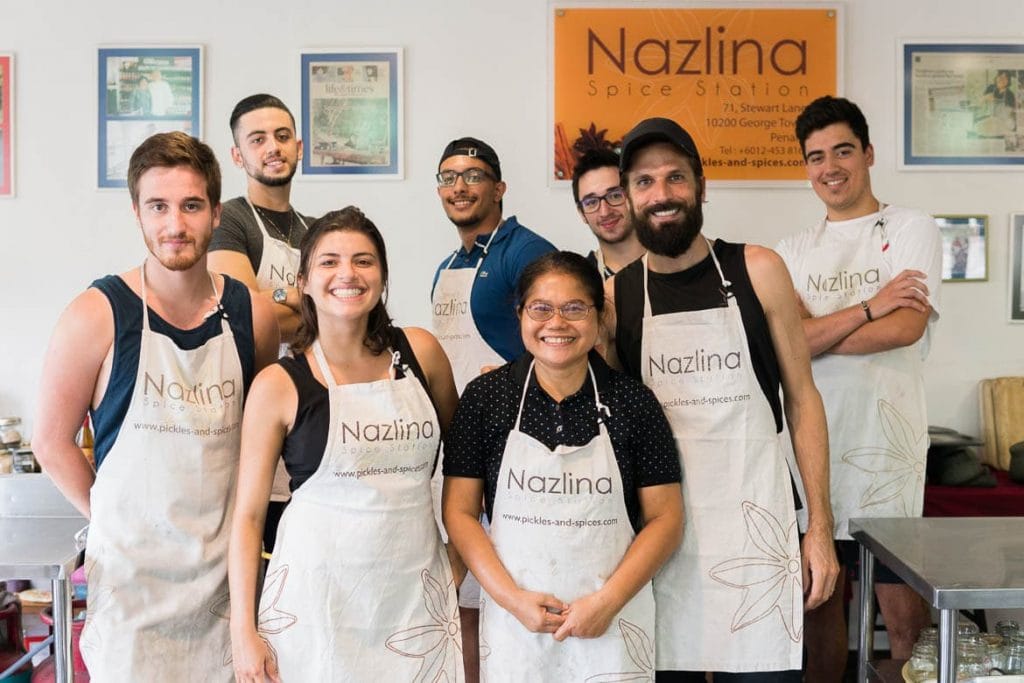
How to Food Travel
You can choose between an immersive food trip, where the entire itinerary is centred on the culinary experiences of the destination, or just include some food tourism activities to complement your itinerary .
But, regardless of your travel style, there is a secret to unlock the full potential of food tourism: Curiosity!
Try to understand not only what people eat, but why they eat in one way or another, what are the local ingredients, what is the story behind the food they prepare. Ask, interact, taste and smile.
How to Plan a Culinary Trip
You can plan a culinary trip independently or through agencies. And whatever your choice is, Food’n Road will help you .
To begin with, get inspired by our Food and Travel blog and explore food destinations with guides and content from each country.
After choosing the destination of your next trip, we suggest two paths :
If you want to plan your itinerary independently, visit our marketplace to find and book experiences , we handpick the best food tourism activities and tours from around the world .
Now, if you want a true gastronomic journey adapted to your taste, we suggest our Food Travel Design service to make a completely customized itinerary for you .
It makes a difference to go beyond the plate
On a culinary trip, you end up learning a lot about the local culture and the best, directly with the residents, exchanging information, trying new flavours and having fun.
During our travels, something that always strikes us is to notice the similarities between the cuisine of distant countries and how the same ingredients are used in such different ways.
For example, have you ever wondered how important the chilli pepper is for Asian cuisine even though it is a native ingredient from the Americas? With each trip, a new discovery!

Food Travel is much more than travelling to eat
We can learn a lot on a trip like this, meet people with different realities from the ones we live in, see other lifestyles, and encourage the preservation of heritage and traditions .
By sharing the table with local people, listening to their stories and talking about typical dishes, you will feel part of the place and will appreciate aspects that were previously unknown.
On your next trip, try to learn about the destination by exploring the local cuisine and I am sure you will never forget this experience.
Count on Food’n Road to plan your next culinary journey and have a nice trip!
- .wp-block-kadence-advancedheading mark{background:transparent;border-style:solid;border-width:0}.wp-block-kadence-advancedheading mark.kt-highlight{color:#f76a0c;}.kb-adv-heading-icon{display: inline-flex;justify-content: center;align-items: center;}.single-content .kadence-advanced-heading-wrapper h1, .single-content .kadence-advanced-heading-wrapper h2, .single-content .kadence-advanced-heading-wrapper h3, .single-content .kadence-advanced-heading-wrapper h4, .single-content .kadence-advanced-heading-wrapper h5, .single-content .kadence-advanced-heading-wrapper h6 {margin: 1.5em 0 .5em;}.single-content .kadence-advanced-heading-wrapper+* { margin-top:0;} .wp-block-kadence-advancedheading.kt-adv-heading_c4edf0-15, .wp-block-kadence-advancedheading.kt-adv-heading_c4edf0-15[data-kb-block="kb-adv-heading_c4edf0-15"]{padding-bottom:0px;margin-top:-20px;margin-bottom:0px;font-size:14px;font-style:normal;}.wp-block-kadence-advancedheading.kt-adv-heading_c4edf0-15 mark, .wp-block-kadence-advancedheading.kt-adv-heading_c4edf0-15[data-kb-block="kb-adv-heading_c4edf0-15"] mark{font-style:normal;color:#f76a0c;padding-top:0px;padding-right:0px;padding-bottom:0px;padding-left:0px;} We promote Food Tourism as a tool for connection and local development. Company Who we are

- BBA Public Accounting
- BBA General Business
- BBA Finance
- BBA Management
- BBA Marketing
- BBA Risk Management & Insurance
- Master of Business Administration (MBA)
- Certificate in Accounting
- Certificate in Banking & Financial Services
- Certificate in Financial Literacy
- Certificate in Financial Technology & Cybercrime
- Certificate in Global Supply Chain Management
- Graduate Certificate in Functions of Business
- BS Child & Family Studies – Child Development
- BS Child & Family Studies – IECE
- Certificate in Family Services
- BA Communication Studies
- Certificate in Communication Studies
- Certificate in Dispute Resolution
- Certificate in Communication in the Workplace
- MS Computer Science
- Certificate in Artificial Intelligence in Data Science
- Certificate in Cybersecurity and Digital Forensics
- Certificate in Game Design
- AA Police Studies
- BS Corrections & Juvenile Justice Studies
- BS Criminal Justice
- BS Police Studies
- MS Criminal Justice Policy & Leadership
- Certificate in Correctional Intervention Strategies
- Certificate in Juvenile Justice
- BS in Elementary Education
- MAEd Master of Arts in Education
- MAT Master of Arts in Teaching
- EdS Specialist in Education
- AS Paramedicine
- BS Emergency Medical Care — Emergency Services Administration
- BS Emergency Medical Care — Fire Service
- BS Fire, Arson & Explosion Investigation
- BS Fire Protection Administration
- BS Fire Protection & Safety Engineering Technology
- Certificate in Industrial Fire Protection
- AA General Studies
- BA General Studies
- BS Health Care Administration
- BS Homeland Security
- MS Safety, Security & Emergency Management
- Certificate in Homeland Security
- Certificate in Security Management
- BS Global Hospitality and Tourism
- Undergraduate Certificate in Gastronomic Tourism
- Undergraduate Certificate in Sustainable Hospitality
- MS Instructional Design & Learning Technology
- Graduate Certificate in Online Learning Design
- Graduate Certificate in User Experience Design
- MS Nursing – Rural Health Family Nurse Practitioner
- MS Nursing – Psychiatric Mental Health Nurse Practitioner
- DNP Post-MSN DNP
- Post-MSN Certificate – Family Nurse Practitioner
- Post-MSN Certificate – Psychiatric Mental Health Nurse Practitioner
- BS Occupational Safety
- MS in Safety, Security & Emergency Management
- Graduate Certificate Construction Safety
- Graduate Certificate in Cyber & Security Management
- Graduate Certificate in Emergency Management & Disaster Resilience
- Graduate Certificate in Occupational Safety
- Graduate Certificate in Safety Leadership & Management
- Bachelor’s to OTD
- Master’s to OTD
- AAS Paralegal Studies
- BA Paralegal Science
- Post-Baccalaureate Certificate in Paralegal Science
- BA Political Science
- BS Psychology
- Certificate in Veterans Studies
- MS Psychology-Applied Behavior Analysis
- MS Industrial Organizational Psychology
- Graduate Certificate in Psychology — Applied Behavior Analysis
- MPA Public Administration
- Certificate in Community Development
- Certificate in Emergency Management & Disaster Resilience
- Certificate in Applied Policy
- Certificate in Non-Profit Management
- Master of Public Health – Health Promotion
- BSW Social Work
- MSW Social Work
- Certificate in Addictions Intervention
- Certificate in Child & Family Services
- Certificate in Leadership & Management
- Certificate in Mental Health
- Certificate in Social Advocacy & Justice
- BS Sport Management
- See All Programs
- Types of Financial Aid
- Applying for Financial Aid
- Understanding Financial Aid
- Financial Aid Policies
- Scholarships
- How to Apply
- Application Deadlines
- Admission Requirements
- Transfer Students
- Transfer from KCTCS
- Visiting & Non-Degree Seeking Students
- Corporate Educational Partnerships
- State Authorization & Professional Licensing Information
- Student Resources
- Faculty Resources
- Online Military Students
- BBA Risk Management & Insurance
- BS Child & Family Studies – Child Development
- BS Child & Family Studies – IECE
- BS Corrections & Juvenile Justice Studies
- MS Criminal Justice Policy & Leadership
- BS Fire, Arson & Explosion Investigation
- BS Fire Protection & Safety Engineering Technology
- MS Safety, Security & Emergency Management
- MS Instructional Design & Learning Technology
- MS in Safety, Security & Emergency Management
- Graduate Certificate in Cyber & Security Management
- Graduate Certificate in Emergency Management & Disaster Resilience
- Graduate Certificate in Safety Leadership & Management
- Certificate in Emergency Management & Disaster Resilience
- Certificate in Child & Family Services
- Certificate in Leadership & Management
- Certificate in Social Advocacy & Justice
What is Gastronomic Tourism?
Humans need food to survive. It provides us with key nutrients that are essential to daily functioning and wellbeing. But food is more than nutrition. Food reminds us of family dinners. It makes us happy when we are sad. It introduces us to different cultures. Gastronomic tourism draws from these psychosocial factors.
The United Nations World Travel Organization (UNWTO) defines gastronomy tourism as a “type of tourism activity which is characterized by the visitor’s experience linked with food and related products and activities while travelling.” Gastronomic tourism can include venues like wine tours, distillery tours, culinary tours, and farm tours. These types of tours are growing rapidly around the world. According to a study published in 2013, nearly “39 million United States leisure travelers choose a destination based on the availability of culinary activities”. Those who don’t choose the destination based on culinary activities will seek specific culinary activities after the destination is decided upon.
Gastronomic tourism is perfectly suited to meet the needs of age and culturally diverse individuals. Food is uniquely suited to promoting individual cultures and bringing people from diverse backgrounds together. For example, visitors to Poznan, Poland each October and November can experience Saint Martin’s Croissant Feast. During this time, bakeries throughout the city create croissants topped with a sugar glaze. This event has thrilled locals and visitors since at least 1860. Not only can visitors get a glimpse of Polish culture, but the purchase of croissants supports the economy and creates jobs for the local people.
No matter where you live, you can develop a gastronomic tour. Perhaps you start with highlighting the food and beverage restaurants in your local area. You might even create a specific date each month to bring local food trucks together with live music. Whatever you can imagine, you can create. Gastronomic tourism provides an opportunity to turn your passion for food, spirits and culture into an exciting and rewarding career.
Earn your online bachelor’s degree from a regionally accredited university that has been an online education leader for more than 15 years. Complete the form to learn more about how you can earn your bachelor’s in global hospitality and tourism and pick up an in-demand certificate in gastronomic tourism or sustainable hospitality along the way, giving yourself a competitive edge in the job market. Contact us today to get started.
By: Karina Christopher, PhD, RD, LD, associate professor, EKU Department of Applied Human Sciences

Search the United Nations
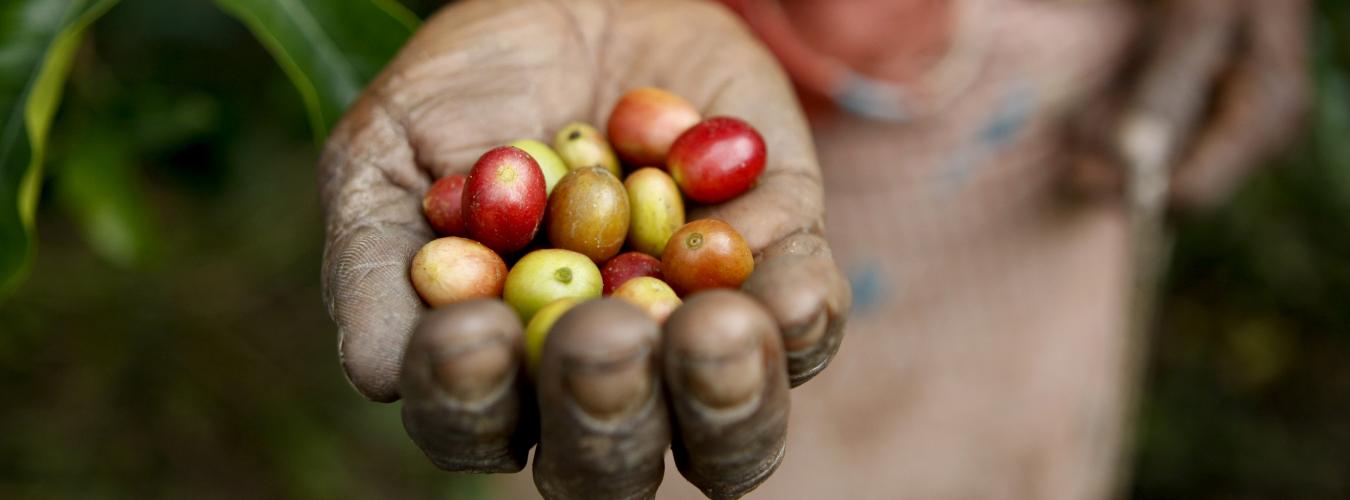
What is Sustainable Gastronomy?
Gastronomy is sometimes called the art of food. It can also refer to a style of cooking from a particular region. In other words, gastronomy often refers to local food and cuisine. Sustainability is the idea that something (e.g. agriculture, fishing or even preparation of food) is done in a way that is not wasteful of our natural resources and can be continued into the future without being detrimental to our environment or health.
Sustainable gastronomy, therefore, means cuisine that takes into account where the ingredients are from, how the food is grown and how it gets to our markets and eventually to our plates.

Calling all foodies: this one’s for you!
Every year, June 18 marks Sustainable Gastronomy Day. This begs the questions: 1) What in the world is sustainable gastronomy? 2) Why is it important enough to have a “day” dedicated to it? and 3) Even so, why should I care?
How the UN System Works for a Sustainable Gastronomy
The United Nations Educational, Scientific and Cultural Organization (UNESCO) and the Food and Agriculture Organization (FAO) and the UN General Assembly work to facilitate the observance of Sustainable Gastronomy Day, in collaboration with Member States, UN organizations and other international and regional bodies, as well as civil society, to observe the Day in raising public awareness of its contribution to sustainable development.
Some of UNESCO’s initiatives include:
- Promoting clean energy for local restaurants (use gas and electricity instead of coal, use natural gas rather than carbon);
- Raising public awareness of sustainable gastronomy through TV food channels and gastronomy shows and through food cultural exhibitions, intended for the food industry and farmers.
As for the FAO, the Organization promotes green culture diets that are not only healthy, but sustainable and suggests that countries that already have dietary guidelines should begin to consider a process of incorporating sustainability into them.
From the FAO
- Freekeh: The ancient dish firing up rural women’s futures in Lebanon
- Fish on our mind, fish on your plate : FAO’s cookbook helps you know, cook and eat fish
- Local food for healthy locals
- We are what we eat: Transforming diets to transform agri-food systems
- A spicy agricultural heritage: there’s more to wasabi than meets the eye
- A cup of tea… or cha?
- For the love of pulses!
- Celebrating nutrition with these five FAO cookbooks
- No one likes labels… unless it comes to food
Focusing on the role of sustainable gastronomy
The UN General Assembly adopted on 21 December 2016 its resolution A/RES/71/246 and designated 18 June as an international observance, Sustainable Gastronomy Day.
The decision acknowledges gastronomy as a cultural expression related to the natural and cultural diversity of the world. In the aftermath of the COVID-19 pandemic, and as the Earth is facing a triple planetary crisis of climate disruption, nature loss and pollution, sustainable gastronomy - celebrating seasonal ingredients and producers, preserving wildlife as well as our culinary traditions - is today more relevant than ever.
The Five Principles of Sustainable Food and Agriculture
Sustainability_figure1_01.gif.
FAO has developed a common vision and an integrated approach to sustainability across agriculture, forestry and fisheries. This unified perspective – valid across all agricultural sectors and taking into account social, economic and environmental considerations – ensures the effectiveness of action on the ground and is underpinned by knowledge based on the best available science, and adaptation at community and country levels to ensure local relevance and applicability.
United Nations
- SDG Goal 2: End hunger, achieve food security and improved nutrition and promote sustainable agriculture
- Global Issues: Food
- Food Systems Summit 2021

Making school meals tasty
Making sure that school meals follow nutrition guidance and are enjoyed by all students is not always an easy task, but a very important one. After all, not only are healthy diets crucial for children's development and wellbeing, but the enjoyment of food is part of the right to food too. FAO asked school foodservice staff around the world to share their top tips and recommendations on how they prepare nutritious meals while ensuring that they are tasty, enjoyed and appreciated by the students. Let's meet some of these hard-working, innovative people and learn from their experiences in the field.
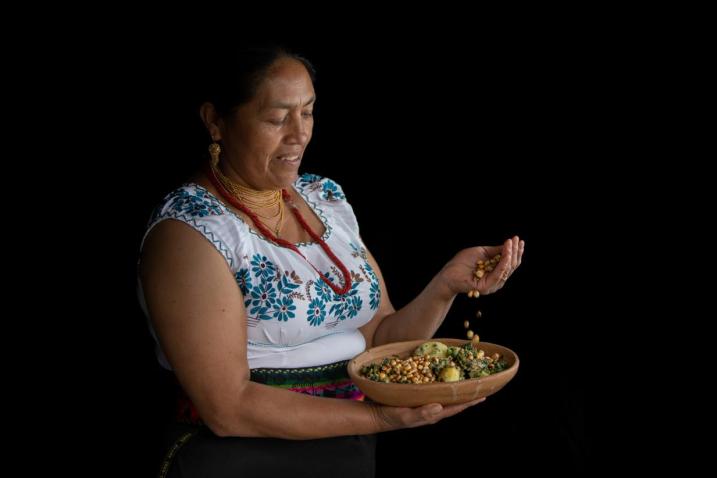
Food for thought to guide your thoughts of food
With these informative and easy-to-follow cookbooks, FAO presents recipes from around the world, neatly packaged with interesting facts, stunning illustrations and helpful tips from chefs. Let these books introduce you to a wide range of cultures, tastes and ingredients, produced on both land and in water. With new cooking techniques from celebrated chefs and hobby cooks, these cookbooks will help you impress your loved ones. So ditch your everyday food recipes and embark on an international culinary journey!

Why do we mark International Days?
International days and weeks are occasions to educate the public on issues of concern, to mobilize political will and resources to address global problems, and to celebrate and reinforce achievements of humanity. The existence of international days predates the establishment of the United Nations, but the UN has embraced them as a powerful advocacy tool. We also mark other UN observances .
world tourism day
Developing more sustainable food tourism.
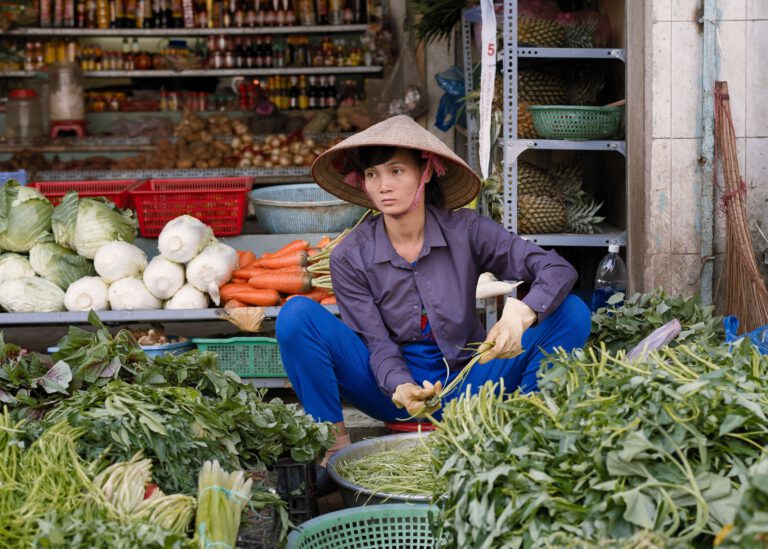
World Tourism day - rethinking tourism
Every year on September 27 th the World Tourism Day is celebrated. The day was established in 1980 by the World Tourism Organization (UNWTO). Its purpose is to promote the value of tourism (BMUV, 2022).
Every year the day has a new theme. This year it is ‘ Rethinking Tourism ’, referring to the still lasting crisis. Restarting the tourism industry is certainly challenging. However, it actually presents a great opportunity for improving tourism and making it more sustainable (Pratama, 2022). Tourism can have a big negative impact on the environment. This reaches from pollution and erosions to endangered species and overall, an enormous ecological footprint (The World Counts, n.d.).
rethinking food tourism on World Tourism Day
The World Tourism Day should not only inspire tourists but also locals to deal with tourism more sustainably (Pratama, 2022). Not only to treat the planet better but also to comply with the strengthened consumer interest in sustainability , food and tourism suppliers should rethink their (food) tourism products (Bertella, 2020).
consumer care about sustainable tourism
In line with that, in a recent study by Tourlane, sustainability was rated as most important to respondents from 18 to 24 years. 39% of the respondents appreciate sustainability when booking their holidays. Also, 49% of the travellers who value sustainability are more likely to choose local accommodations (49%) and prefer destinations that support sustainable initiatives (45%) (Tourlane, 2022). This shows that tourists should also get the chance to behave more sustainable while travelling.
developing sustainable food tourism
As a niche market in tourism, food tourism also can have many negative impacts on the environment like the loss of biological diversity or the destruction of the ozone layer due to carbon emissions, especially from transportation matters. But there are many possibilities in food tourism to design tourism as sustainable as possible for every party involved. Food (tourism) suppliers can make use of the following tips on how to make food tourism more sustainable.
1. Be local
Offer food that is not only made out of ingredients that are both seasonal and regional , but make sure they actually are local food that has its history at the place. The best option for that is, to produce and consume the food where it is also grown (ecotourism world, 2020). Buschenschanken in Austria for example only sell products that have been grown and produced at their own location (Weingut Buschenschank, n.d.).
2. Become awarded with Michelin Green stars
A Michelin Green Star does not only award outstanding cooking but also the ethical and sustainable practices behind the meal. The judges take a closer look at sustainable food experiences around the production of the food. Restaurants are therefore graded upon their s ustainable practices , considering things like the ingredients, the environmental footprint, resource management and sustainable communication to the guests (Michelin Guide, 2021).

3. Say no to single use plastics
4. respect local people.
To be as sustainable but also authentic as possible as a supplier, restaurants should be run by local people that can actually tell more about the history of the food and make a story around it. This helps the tourists to value the food even more, especially when employees communicate the feeling of authenticity (Ha, 2022). One example for this is Blue Nile in Munich. Guests describe their visit as an authentic experience due to the staff, the food and the overall environment (Tripadvisor, 2022).
5. The Travelling Spoon
The Travelling Spoon is a website which gives local hosts with homemade food the possibility to become visible. The website helps tourist to become more aware on what places pass traditions in their food to experience authentic food (The travelling spoon, n.d.).
summing up world tourism day 2022
Overall, food tourism suppliers can contribute to a long-term sustainability by respecting all parties involved . Food tourism can pave the perfect way to greener tourism generally and greatly contributes to sustainable tourism . It is important that sustainability is always being considered in food tourism, not only by tourists but also by suppliers and restaurants. That way, more people become active in sustainable food tourism and educate each other on the topic (Emily, 2021). The World Tourism Day reminds us to rethink tourism in all niche markets and to make small steps in contributing towards a more sustainable tourism industry .
Laureen Rashof & Sarah Terborg, 27.09.2022
Bertella, G. (2020). Re-thinking sustainability and food in tourism. Retrieved from https://www.ncbi.nlm.nih.gov/pmc/articles/PMC7375275/
Bundesministerium für Umwelt, Naturschutz, nukleare Sicherheit und Verbrauerschutz (BMUV). (2022). Welttourismustag. [World Tourism Day]. Retrieved from https://www.bmuv.de/service/veranstaltungen/veranstaltung/welttourismustag
Ecotourism World (2020). Gastronomy tourism in a sustainable way. Retrieved from https://ecotourism-world.com/gastronomy-tourism-in-a-sustainable-way/
Emily (n.d.). Sustainable food tourism. Retrieved from https://seasidewithemily.com/sustainable-food-tourism/
Ha, M. A. (2022). Food tourism is the perfect entrée for greener travel. Retrieved from https://skift.com/2022/04/22/food-tourism-is-the-perfect-entree-for-greener-travel/
Michelin Guide (2021). What is a michelin green star? Retrieved from https://guide.michelin.com/kr/en/article/features/what-is-a-michelin-green-star-kr
Pratama, M. J. (2022). Celebrating World Tourism Day 2022. Retrieved from https://www.halaltrip.com/other/blog/celebrating-world-tourism-day/ :
Rinkesh (n.d.). 13+ Ultimate ways to promote sustainable tourism. Retrieved from https://www.conserve-energy-future.com/ways-promote-sustainable-tourism.php
The travelling spoon (n.d.). Company info. Retrieved from https://www.travelingspoon.com/about
The World Counts (n.d.). 45 arrivals every second. Retrieved from https://www.theworldcounts.com/challenges/consumption/transport-and-tourism/negative-environmental-impacts-of-tourism
Tourlane. (2022). “Rethink tourism” am Welttourismustag. ‘Rethink tourism’ on the World Tourism Day. Retrieved from https://www.deutscherpresseindex.de/2022/09/26/rethink-tourism-am-welttourismustag/
Tripadvisor (2022). Blue nile. Retrieved from https://www.tripadvisor.de/Restaurant_Review-g187309-d742667-Reviews-Blue_Nile-Munich_Upper_Bavaria_Bavaria.html
Weingut Buschenschank (n.d.). Der Buschenschank. [The Buschenschank]. Retrieved from http://www.buschenschank-dietrich.at/der-buschenschank/

- Privacy Overview
- Strictly Necessary Cookies
- 3rd Party Cookies
- Cookie Policy
This website uses cookies so that we can provide you with the best user experience possible. Cookie information is stored in your browser and performs functions such as recognising you when you return to our website and helping our team to understand which sections of the website you find most interesting and useful.
Strictly Necessary Cookie should be enabled at all times so that we can save your preferences for cookie settings.
If you disable this cookie, we will not be able to save your preferences. This means that every time you visit this website you will need to enable or disable cookies again.
This website uses Google Analytics to collect anonymous information such as the number of visitors to the site, and the most popular pages.
Keeping this cookie enabled helps us to improve our website.
Please enable Strictly Necessary Cookies first so that we can save your preferences!
More information about our Cookie Policy
- ALL MOSCOW TOURS
- Getting Russian Visa
- Top 10 Reasons To Go
- Things To Do In Moscow
- Sheremetyevo Airport
- Domodedovo Airport
- Vnukovo Airport
- Airports Transfer
- Layover in Moscow
- Best Moscow Hotels
- Best Moscow Hostels
- Art in Moscow
- Moscow Theatres
- Moscow Parks
- Free Attractions
- Walking Routes
- Sports in Moscow
- Shopping in Moscow
- The Moscow Metro
- Moscow Public Transport
- Taxi in Moscow
- Driving in Moscow
- Moscow Maps & Traffic
- Facts about Moscow – City Factsheet
- Expat Communities
- Groceries in Moscow
- Healthcare in Moscow
- Blogs about Moscow
- Flat Rentals
Email Address
Phone Number
Choose Date
Number of Persons
Additional Comments
This tour needs to be prepaid with your bank card after our manager confirms booking details with you.
By pressing «Book This Tour» button you agree that your personal data will be handled in accordance with Russian Federal Law 152-FZ and The EU General Data Protection Regulation.
Contact info
Gastronomic moscow private tour, tour highlights.
• Taste your way through Moscow by taking our most ‘delicious’ tour. • Enjoy experiencing both premium restaurants and fast-food restaurants. • Taste, walk, learn more about Moscow and its history, repeat… Listen to professional guide as you walk down the streets of Moscow in between tastings. • Get an idea of Russian cuisine, as diverse and multicultural as the country itself. • Fun, insightful and tasty! This tour is a must-do for visitors to Moscow.
Tour Description
We will start our tour with breakfast at an elegant café with impeccable traditional Russian cuisine and interior of a nobleman’s mansion, which is worth the name of a place of interest in its own right! Then we will go the sacred place for Moscow foodies – an area in the city centre, which boasts of plenty of high-end trendy restaurants. You will have a glass of wine on one of the cafes there and have an opportunity to mingle with the locals and experience the unique culture of the vibrant neighborhood.

A fish dish at Café Pouchkine
Then we will visit a farmers’ market, located in downtown, where you can taste products from local artisans and gourmet products from all over the world. This comfortable open space blurs boundaries between a farmers’ market, a restaurant and a supermarket – you can pick up products you like and have them cooked for you right on site!
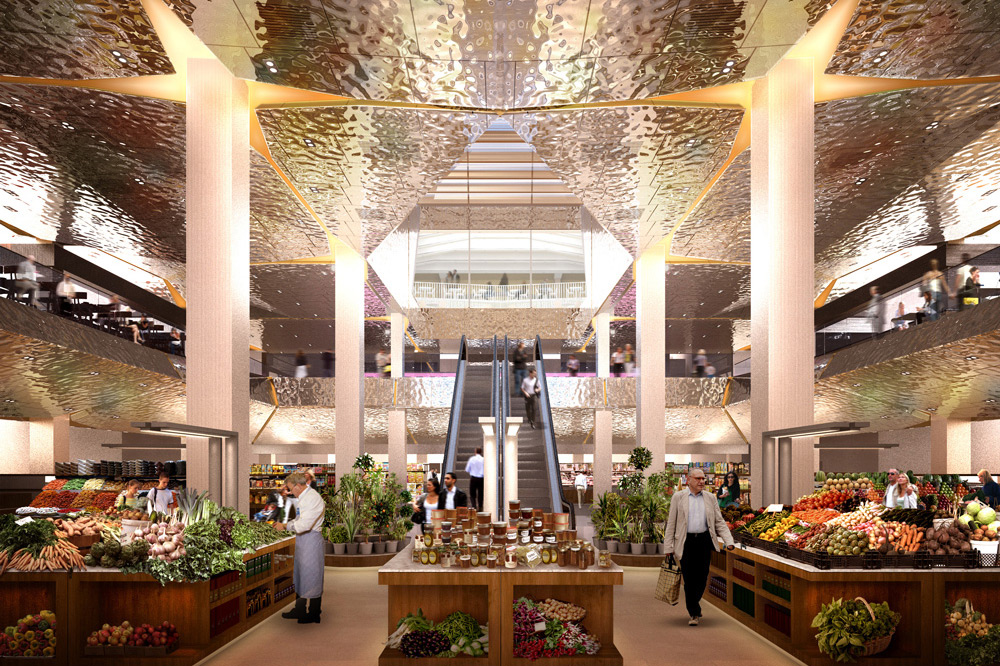
Tsvetnoy Central Market
If you feel hungry after a long stroll down beautiful Moscow streets, you will have a chance to try Russian fast food in one of the most popular fast food restaurants and make sure that Russian fast food is one-of-a-kind: based on traditional Russian cuisine dishes, they are nutritious, delicious and good for you.
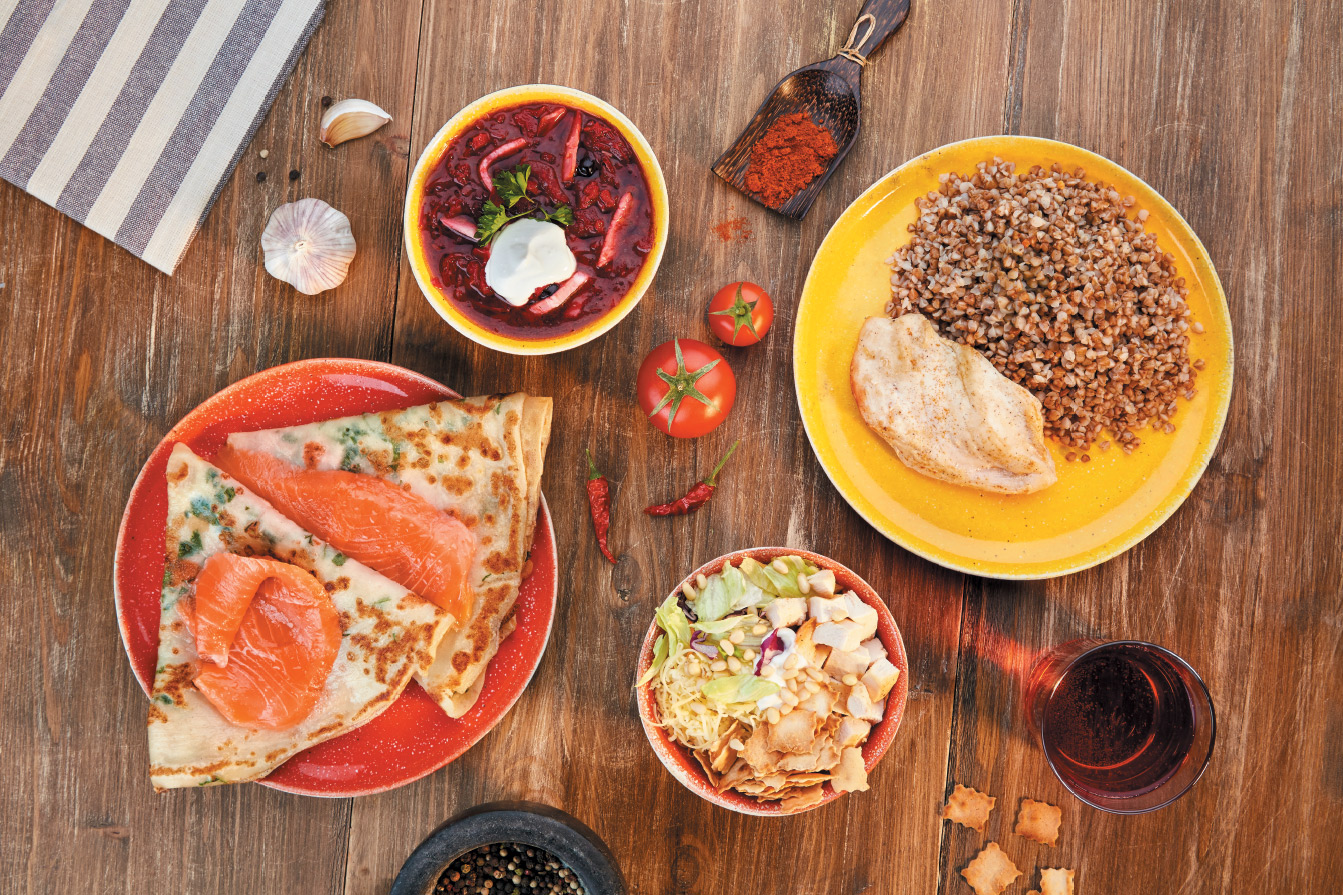
Regular dinner at Teremok
And last but not least – to celebrate a day of acquaintance with Moscow and its exciting gastronomic scene, treat yourself to a dinner at a restaurant, which was included in the international rating of The World’s 50 Best Restaurants and enjoy a bird’s eye view of Moscow!

White Rabbit Restaurant Patio
Gastronomic Moscow tour is a great way to see the city and learn about its history and lifestyle and to enjoy great food at the same time. Moscow is bursting with restaurants, cafes, markets and other food spots, so you will definitely need a professional local guide to help you navigate in the diverse Moscow culinary scene!
- Departure Pushkinskaya Square
- Departure Time 10:00
- Ending Point Smolenskaya Square
- Languages English Russian
- Not Included All gastronomic sets and dishes during the tour (around €150/person)
Brilliant guiding, I was really impressed. I strongly recommend it! Worth a visit just for the pleasure of travelling (and eating!) =)
Write A Review Cancel reply
You must be logged in to post a comment.
Similar Tours

«Day Two» Moscow Private Tour
If you’ve seen all touristy places in Moscow already, it’s time to go a bit further: walk in charming quiet neighborhoods of Moscow, have a snack in one of the best patios with a view of one of the most spectacular parts of the city and have dinner on board of a luxurious yacht on a cruise navigating down the Moskva river.
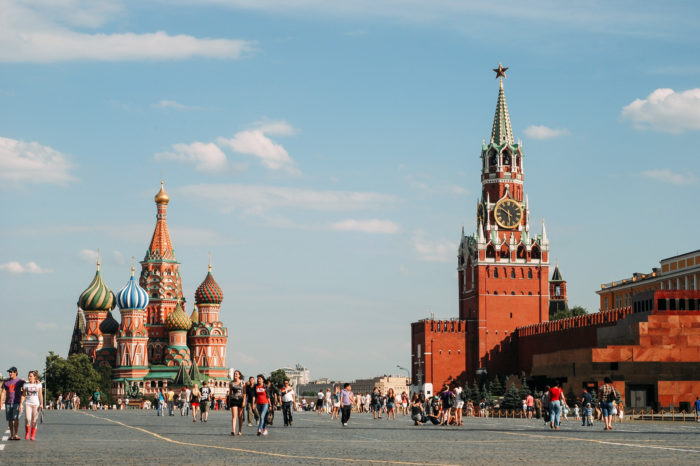
All-in-One Moscow Essential Private Tour
If you are in Russia for the first time but do not enjoy visiting crowded ordinary touristic paths, then All-In-One Moscow Walking Tour was created for you! It’ll let you see all of the most important city symbols, look at the Russian life and be acquainted with the Russian lifestyle as if you were a local.
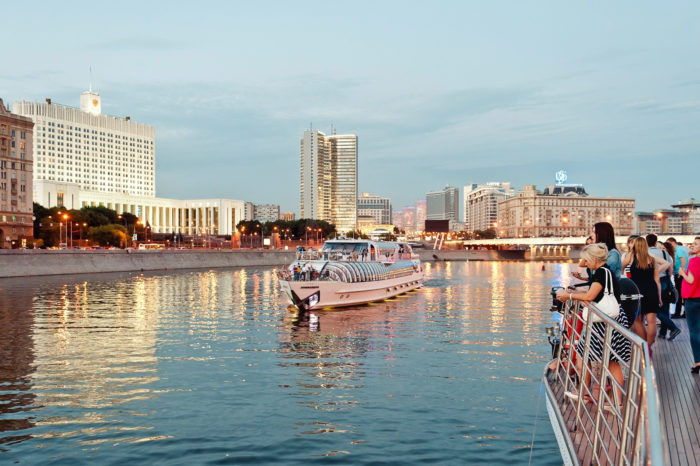
Whole Day in Moscow Private Tour
If you have a whole day you can devote to exploring Moscow, this is the perfect tour for you! Explore the key sightseeing spots of Moscow city center and visit off-the-beaten path places in Moscow and feel like a local.
Tour Guide Jobs →
Every year we host more and more private tours in English, Russian and other languages for travelers from all over the world. They need best service, amazing stories and deep history knowledge. If you want to become our guide, please write us.
Contact Info
+7 495 166-72-69
119019 Moscow, Russia, Filippovskiy per. 7, 1
Mon - Sun 10.00 - 18.00
About the festival
- Event calendar
Tastes of Russia in districts
- Festival map

Manezhnaya Square and the transition to Revolution Square
Festival programme.

- Appointments
- Corporate Connect
- Discover Your India
- Explore the world
- Food Voyager
- Hotels & Resorts
- Lifestyle, Weddings & Wellness
- Today's Traveller Awards
- Today's Traveller Interviews

- Today’s Traveller Awards
- Today’s Traveller Interviews
Culinary Journeys: An Epic Adventure through World Cuisines
Culinary tourism has emerged as an epic adventure – a narrative telling the tale of nations through their diverse cuisine traditions and innovations..
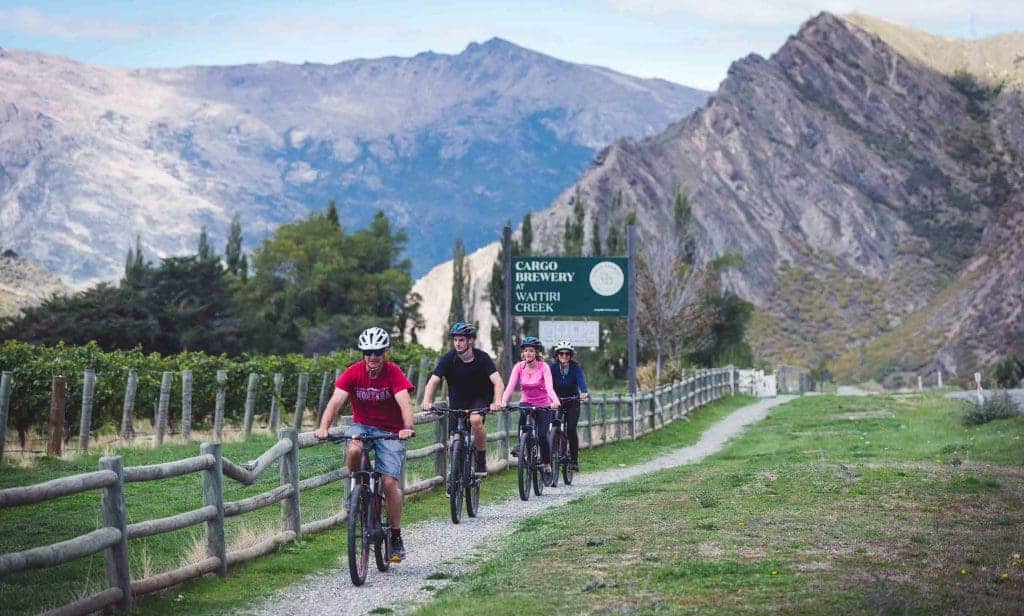
From the eclectic street foods of Bangkok to the gourmet landscapes of Japan, and from finger food in India and Singapore to gourmet diners in Paris, every meal is a new chapter in the journey through a nation’s heritage, culture, and spirit.
For the culinary connoisseur, travel is a canvas painted with flavours unique to every region. It has evolved as a gourmet exploration, a passage through the rich history of global cuisines.
Significantly, the thrill of cuisine exploration is not confined to dining tables. Cycling tours across verdant vineyards in New Zealand and beer-cycling ventures in Belgium’s northeastern cities are turning gastronomic explorations into adventurous pursuits, blending culinary indulgence with active exploration.
Similarly, from quaint cycle rickshaw tours of Jaipur’s Old City food streets and Havelis all the way to Ho Chi Minh’s motorbike food tours, there are many experiences. Few experiences however can beat Tasting while watching Mumbai’s iconic dabbawalas, who courier over 200,000 hot homemade lunches to office goers across the city from home kitchens. These are indelible experiences that create windows into the soul of the regions and create the basis for the wildly popular global food tours that blend exploration of local delicacies with the history and heritage of the region.
A Window to Global Cultures
Culinary tourism is where travel becomes intertwined with the pursuit of distinctive gastronomic experiences. It involves exploring the essence of places through their food, a journey where every bite speaks of the local heritage, customs, and arts.

Europe, a blend of ancient culinary traditions and innovations, stands as a gastronomic epicentre, a repository of Michelin-starred culinary arts, narrating the rich and varied cuisine heritage of the continents.
Venturing eastward, the Asia-Pacific region, with its diversity and vibrant street food culture, emerges as a foodie paradise, filled with a myriad of flavours, aromas, and philosophies. It reflects the diverse culinary heritages of the region.
Food is a big part of the culture and is a window into the food philosophy of the Middle East. From Egypt to Saudi Arabia – the diverse and vibrant Middle Eastern cuisine culture is a rich, mosaic heritage of unique identities! The fusion of food and travel serves not only as a bridge to explore and appreciate the many tastes and textures of this region but also acts as a beacon, preserving and showcasing the tangible and intangible treasures of its heritage.
North America, a melting pot of food traditions, plays a substantial role in shaping the global culinary landscape. With its fusion of flavours and innovations, it transforms cuisine experiences into eclectic food festivals and events, contributing substantially to the global gastronomic stage.
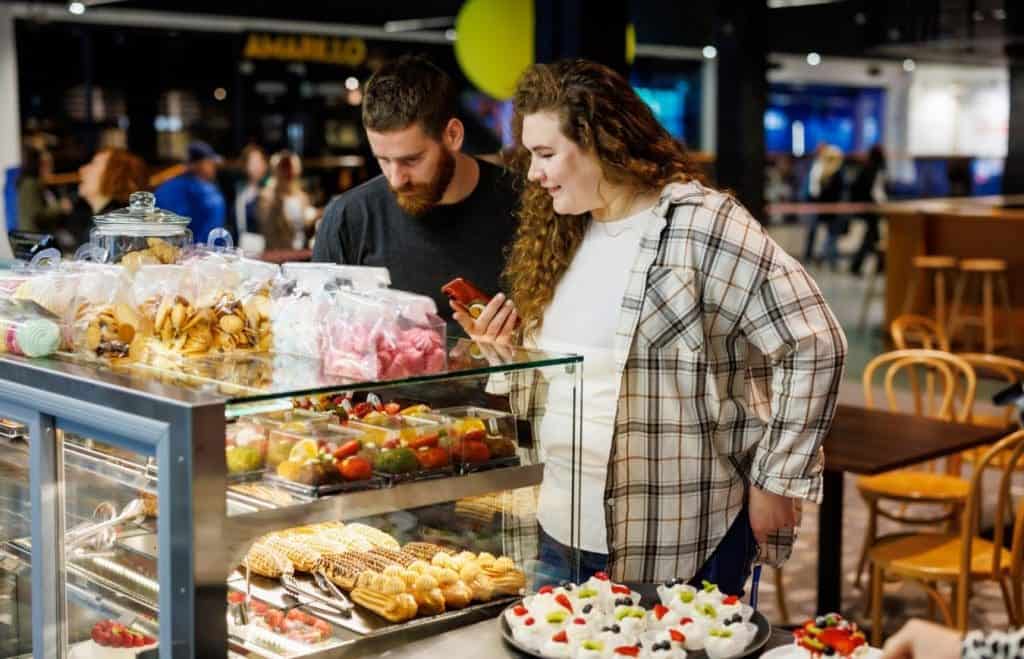
Latin America, the land of vibrant food expressions and fervour, witnesses a steady gastronomic evolution. Renowned for its colourful street markets and unique local delicacies, it is a region where culinary arts reflect the vibrant spirit and rich cultural diversities of the lands, adding to the global cuisine palette.
The culinary traditions of Africa are rich dialogues between the land and its people, narrating the diverse cultural stories of the continent, and enriching the global food landscape. These regional gastronomic landscapes, each unique in its culinary expressions and heritages, collectively.
They reflect the diverse dialogues between different cultures and traditions, underscoring the universal appeal and significant economic impact of food tourism in the global arena.
Regional Gastronomic Landscapes
Culinary tourism is more than just savouring different foods; it’s an intimate interaction with the locales, their lifestyles, and their food philosophies. Each dish is a gastronomic manuscript, telling tales of the regions and their unique flavours—be it the spiced richness of Indian curries or the delicate balance of Japanese sushi.
Culinary explorers seek to unravel these tales, to understand the wisdom and the cultural significance embedded in each cuisine. These master voyagers seek authentic culinary experiences, which serve as gateways to the traditions and philosophies of the regions they visit. As defined by the Ontario Culinary Tourism Alliance (OCTA), it is a journey to savour, learn about, and indulge in food and drink that embodies the local heritage and culture of a place.
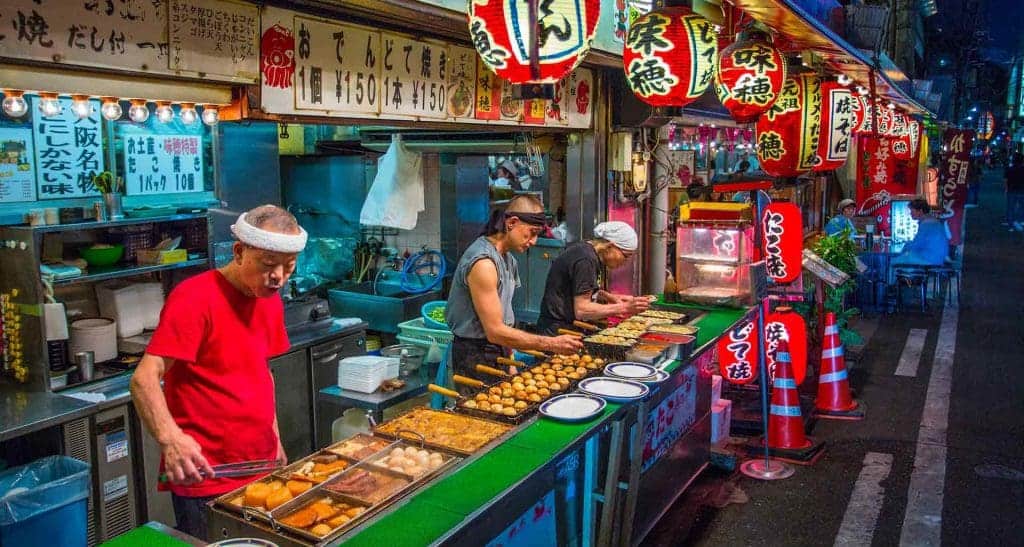
Iconic cuisines often define regions—pizza in Italy, ramen in Japan, and curry in India—each dish is a signature, a flavorful narrative of the nation’s history and its people’s lifestyle.
Famous Global Culinary trails

In crafting culinary journeys, each tour becomes an adventure, taking you through winding alleys and historic quarters, breathing in tantalizing aromas and the authentic lifestyle of the people of that region. These curated experiences allow connoisseurs of food to delve deep into the food tapestry of countries far and wide.
Food tours are not just about tasting; they’re about immersing. Whether it’s weaving through vibrant markets, uncovering hidden street food gems, or learning the art of local cooking, they bring you closer to the true essence of each destination’s food culture. Explore exotic spices in bustling bazaars, learn ancient cooking secrets from local chefs, and savour every bite as you discover the world’s gastronomic wonders.
From region to region iconic food trails emerge: In Dubai, you can go on tours to try local Emirati foods and traditional Arabian coffee in the souks and streets. There are also street food tours in Morocco where you can taste a variety of local foods, including sweet treats like sfenj and famous soups like harira, made with chickpea, tomato, and lentils.
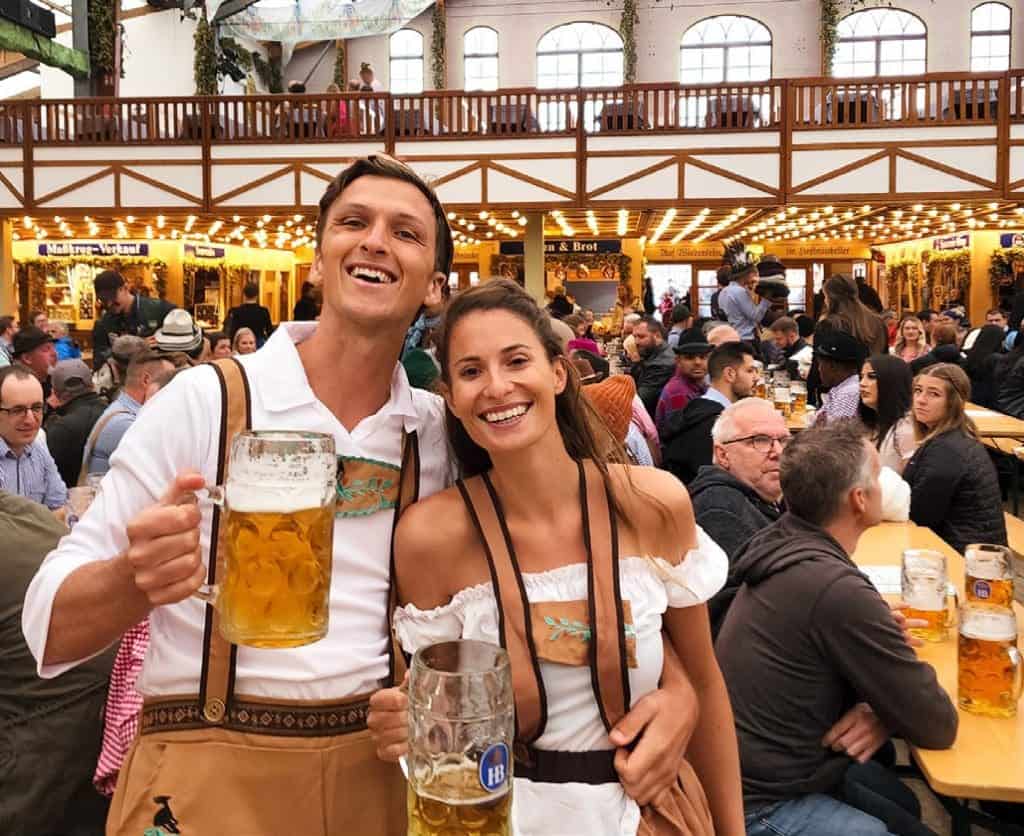
Beirut Food Walks lets tourists explore and try local Lebanese foods like kenafah and Safiha Baalbaki as they walk around the old city streets. There are also popular food tours in Egypt’s Downtown and Heliopolis where people can taste local foods like koshary, taameya, molokheya, and learn about the long history of Egyptian food.
Foodies in Southeast Asia love to learn to cook Balinese dishes with organic produce from local markets. If in Hanoi, Vietnam, foodies go crab fishing in a basket boat and cook their catch like a local! And then there are the buzzing floating markets of Bangkok which light up as the sun sets, where you can savour delicious street foods in hidden alleys.
In the Far East, Food tours in Japan keep you awake as they revisit your dream and bring it to life by exploring Kyoto’s food district by night where foodies wander through its renowned Tsukiji fish market and enjoy the best seafood tastings one can imagine.
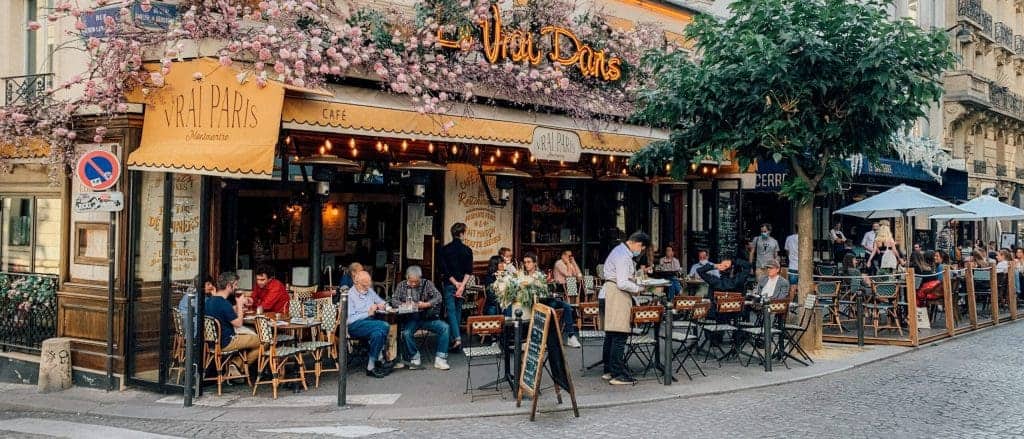
Move over to Europe and no foodie tour can miss the iconic Fat Boy food tour in Budapest for an unforgettable cuisine experience! There are so many food tours to experience – from Truffle hunting tours in Croatian Istria; Beer and chocolate tours in Brussels; Tapas tours in Andalucia; and pasta-making classes in Bologna.
The Gastronomic Impact on Tourism Dynamics
With the quest for authenticity steering modern tourism trends, culinary experiences have become crucial elements shaping travellers’ perceptions and memories of destinations. It’s not about extravagant dining; it’s about immersing in diverse culinary adventures, capturing the essence of places through their food.

Celebrity chefs and culinary maestros have propelled cuisine tourism into the global spotlight, their innovations and food tales turning foods into experiential journeys. The influence of renowned chefs and the gastronomic imagery splashed across media platforms have fueled the ascent of cuisine tourism. They are masters at transforming dining into social tapestries, weaving together culinary aficionados in explorations of home-cooked goodness.
Platforms like EatWith, CozyMeal, IfOnly, Groupon, and FoodsofNYTours are some popular platforms offering food-focussed experiences, and unique culinary engagements, transforming local dining experiences into cultural exchanges and learning opportunities.
The Culinary Magnetism of Global Festivals
Across continents, a myriad of food, wine, and beer festivals transform places into gastronomic hubs, drawing culinary enthusiasts to iconic events like Oktoberfest in Munich and Savour in Singapore.
Iconic events like the La Tomatina in Spain and the Melbourne Food and Wine Festival are the magnets drawing culinary aficionados from around the globe. These festivals not only celebrate the arts but also position regions as epicentres of gastronomic innovations and traditions.
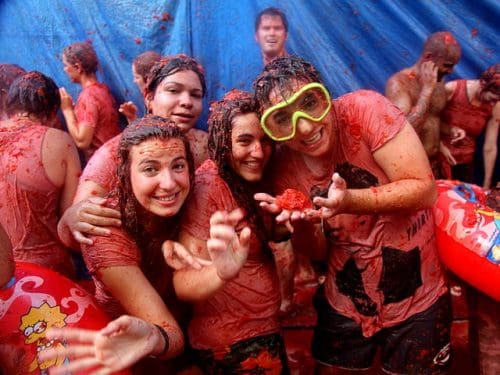
In New Zealand, festivals like the Hokitika Wildfoods Festival and Toast Martinborough showcase the exquisite amalgamation of fine wines and delectable cuisines. At the same time, events like Simply Red by Le Cordon Bleu New Zealand offer a harmonious blend of regional wines with classic French cuisine.
Events like India’s International Mango Festival and the Goa Food & Cultural Festival showcase the richness of Indian culinary heritage, turning India into a gastronomic haven for food explorers.
These festivals elevate regions into gastronomic destinations, highlighting the local culinary brilliance and contributing significantly to local economies and tourism sectors. They are the platforms where food traditions meet innovations, where local flavours mingle with global cuisine trends, creating a confluence of food arts and experiences.
Culinary Legends: Maestros of Gastronomy
The culinary world is rich with master chefs like Gordon Ramsay and Anthony Bourdain, who have immortalized cuisines through their culinary philosophies and innovative approaches. Their interpretations of traditional dishes and the creation of culinary masterpieces have played pivotal roles in showcasing the infinite potential of culinary arts.
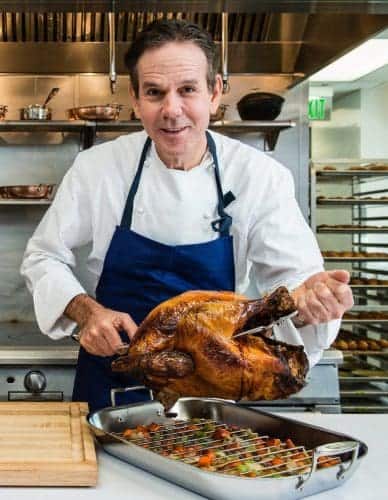
Similarly, culinary visionaries like Jamie Oliver and Ferran Adria, whose creations and philosophies have transformed the cuisine world, bring forth a renaissance in culinary arts.
And who isn’t awed by celebrity chefs who stride like Colossus across the global culinary stage like: Alain Ducasse synonymous with breaking Michelin star records; Pierre Gagnaire, the iconoclastic chef at the forefront of the fusion cuisine movement; Heston Marc Blumenthal a pioneer of multi-sensory cooking, food pairing and flavour encapsulation; and Thomas Keller made history when he became the first and only American-born chef to earn several Michelin stars.
Such prodigies have reinvented gastronomy, turning it into an art form that transcends cultural boundaries. They have succeeded in transforming food into an experiential journey, and a sensory exploration. Their endeavours have in fact globalized local cuisines, introducing new culinary techniques to the world, and enriching the global canvas.
The Culinary Tapestry of India: Of Spices and Flavours
India , with its myriad of cultures and traditions, is a culinary paradise, a gastronomic journey through the diverse landscapes and the rich tapestry of its regional cuisines. From the aromatic biryanis of Hyderabad to the spicy curries of Rajasthan, each region brings forth its unique food identity, enriched with local flavours, spices, and techniques.
Renowned chefs like Vikas Khanna, Sanjeev Kapoor, Manish Malhotra and Vicky Ratnani have been instrumental in globalizing Indian cuisine, their innovations and philosophies narrating the diverse food tales of India to the global audience.

India’s culinary tourism is not just a sensory delight but also a journey through its ancient culinary wisdom, traditional cooking methods, and rich cultural heritage reflected in its cuisine. The spice markets of Delhi, the tea gardens of Assam, and the coastal cuisines of Kerala and Goa offer food enthusiasts a diverse palette of experiences, each narrating a unique tale of India’s diversity and richness.
India’s famous food tours
India’s iconic culinary trails include the famous Chandni Chowk and Old Delhi tour with steaming hot chai and freshly fried pakoras in mint chutney, delicious freshly cooked badam puri, alloo-tikki and Dahi-bhalla to be followed by the aromatic pure desi-ghee jalebis! The legendary parathas of Chandni Chowk explore a whole new gourmet world which has a long winding alley named after it – ‘ Paranthewali Gali ‘ dedicated to every kind of paratha.
The food trail of Jama Masjid in Old Delhi’s walled city is a class apart as it explores history and legends through food stalls, famous old restaurants, traditional bawarchis offering authentic Mughlai Street food – mouth-watering kebabs with mint raita topped off with rabri kulfi not to mention crispy fried spicy chicken and of course the remarkable morning breakfast of Nihari along with hot and crispy Khamiri Roti.
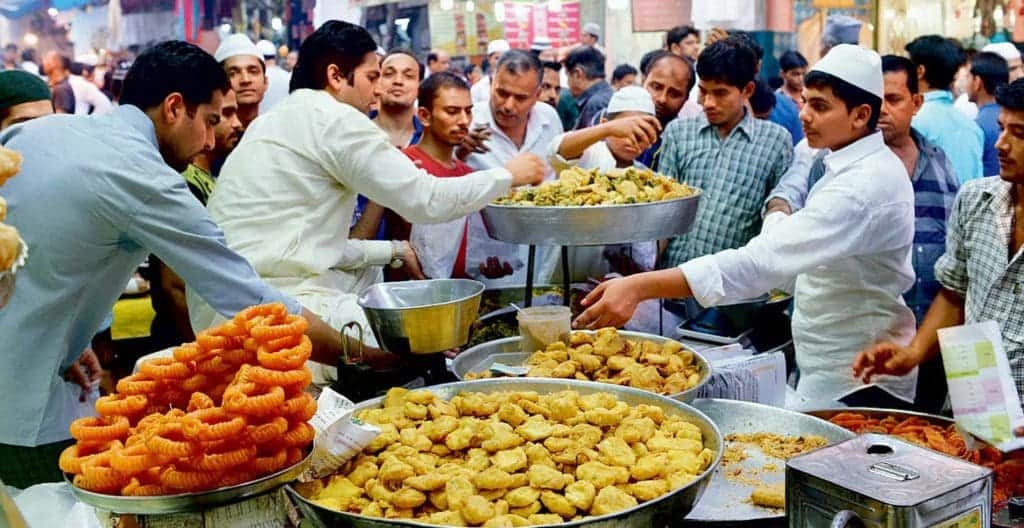
As famous as the Taj Mahal is the the popular food tour of Old Agra with learn-to-cook chicken and vegetables in a tandoor oven and the resplendent Biryani tours of Lucknow which also showcases simple spicy daal-chaawal. There is also Varanasi’s time-honoured paan and vegetarian Street food tour that meanders through alleys and temples with food stopovers for famous early morning Malaiyo, lassi or thandai and tamatar and fruit chaat to name a few.
Not to be missed is Outer Bangalore’s Eco-friendly, organic farm trips where you pick fresh vegetables from the farm and learn traditional Indian cooking. Indian food exotica has a lot more steaming hot tours on offer. The food tour in and around Alleppey in Kerala’s backwaters shares traditional snacks like idiyappam, nuller puttu, and payamburi while Fort Kochi and its food heritage tours include finger-licking fresh fish snacks topped off with pure south Indian filter coffee.
A Flourishing Feast: Projections for the Culinary Tourism Market
The culinary tourism market is in for a treat, as it is expected to rise to USD 284.8 billion by 2030! That’s a growth rate of 8.9% from 2023 to 2030. This isn’t just about loving food; it’s about people travelling the world to experience new and exciting flavours, dishes, and cooking methods, driven by a desire to explore each region’s authentic culinary riches.
This tasty journey is gaining momentum mainly because of the craving for genuine, unaltered culinary experiences, and the impact of social media which is all about food these days. Social media is acting like the secret sauce, giving a real boost to the popularity of culinary tourism. It’s where food and travel lovers share their unique food experiences and let more people know about the hidden food gems and local specialities.
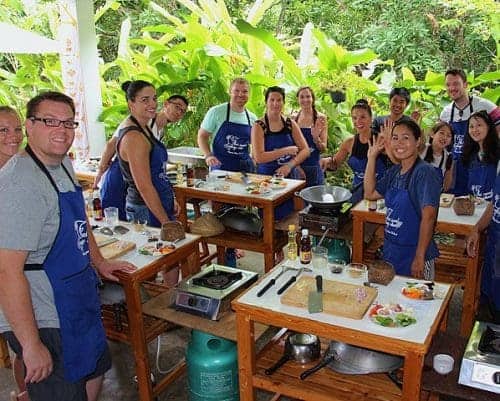
With modern technology like smart apps, artificial intelligence, cloud computing, and big data, it’s now easier to know what people like and offer them travel plans that suit their taste buds. These tech platforms are making it simpler for travellers to find and enjoy food experiences that they’ll love.
Now, if we talk about the types of activities people enjoy in culinary tourism, it includes things like trying new dishes, learning to cook them, enjoying meals at renowned places, attending food festivals, and more. People from all generations, from Baby Boomers to Generation Z, are adding their own spice to the mix. Among all these, cooking classes are becoming the hot favourite really fast, showing a universal love to understand and recreate diverse dishes from around the world.
In a nutshell, culinary tourism is not just about the food but about the experiences, stories, and cultures behind each dish, turning every meal into a journey of its own.
Coming into its own
Culinary tourism as an exploration of the diverse tapestry of global cultures, has come into its own. It has a distinct food tribe that is in pursuit of authentic food narratives that define regions.
Every journey is painted with memorable gastronomic hues, turning every meal into a cultural revelation and a sensory exploration- leaving the culinary wanderer with a richer, more flavorful understanding of the world.
Read More: Latest
Our Social Presence

- Discover India
- Hotels & Resorts
- Lifestyle, Weddings & wellness
- Todays Traveller awards
- Todays Traveller Interviews
Quick Links
Our social networks.
Taste of the Arctic International Gastronomic Festival to Take Place in Moscow
December 03, 2021 14:35 ET | Source: Russian Chairmanship of the Arctic Council Russian Chairmanship of the Arctic Council
Moscow, Dec. 03, 2021 (GLOBE NEWSWIRE) -- Moscow will host the Taste of the Arctic International Gastronomic Festival of northern cuisine within the frames of Russia's Chairmanship of the Arctic Council on Dec. 10–11, 2021. The participants of the two-day business and gastronomic program will be representatives of the Arctic countries, federal and regional government authorities, ambassadors of the Arctic Council member states, chefs from the best restaurants of the Arctic regions of Russia and other countries, as well as culinary experts, tour operators and restauranteurs. Key events include the Arctic Cuisine culinary marathon and the blogger battle, which will be broadcast live on the Russian Chairmanship of the Arctic Council and Roscongress Foundation website and the festival community VKontakte social media.
The festival's events will take place in the old Loft Hall mansion in Moscow. The diversified business and gastronomic program aims to popularize the national cuisine of indigenous peoples of the Arctic zone, developing the gastronomic tourism and economy in this territory while carefully preserving the traditions of the North.
The participants of the business program - representatives of authorities, industry associations, tourist and restaurant business - will discuss the topical issues of preservation and development of national cuisines of the peoples living in the Arctic zone and the ways to attract tourists to these regions. On December 10, the business session "Gastronomy as a Key Attraction for Tourism in the Arctic: Best International Practices" and the presentation of the Arctic Council's EALLU project on the traditional food culture of indigenous peoples will take place. On December 11, participants will take part in the workshop entitled "National Cuisine Packaging in Street Food Format" and a session entitled "Formation of Made in the Arctic Brand as a Tool for Popularizing the Arctic Cuisine."
In the evening of December 10, the business program will include an immersive gastronomic Arctic Gala dinner, during which it will be possible to see the chefs preparing dishes of the northern cuisine before serving them. The organizers will also entertain the guests with a show program in the ethnic style. The performers will include the Yakutian Uraan DJ duet, ethno-singer Erkin Alekseev, singer and DJ Alyona Minulina and Khadri Okotetto, a performer of the Nenets epos from Yamal.
For two days, there will be the Arctic Expo technological exhibition featuring multimedia iceberg stands, disclosing the specific features of the Arctic regions of Russia and the Arctic countries. The exhibition visitors will get the most up-to-date information about the national and culturally specific features, tourist and trade potential of these territories, manufacturers working there, marketplaces and opportunities for cooperation.
A rich gastronomic program is also planned. The Arctic Cuisine culinary online marathon will be held at the Taste of the Arctic festival venue for two days and live broadcasted on the Russian Chairmanship of the Arctic Council and Roscongress Foundation website and VKontakte community social media. Original dishes of northern cuisine will be cooked by experienced chefs from restaurants of nine Arctic regions of Russia and the Arctic Council member states. The Russian participants of the marathon include such renowned chefs as Andrey Anikiev from the Roomi northern cuisine restaurant in Arkhangelsk, Alexander Ermolin from the Timan restaurant-museum in Naryan-Mar, Ivan Balin, sous chef of the VKareliiEst museum-restaurant, Ilya Vegera from the Sedmoye Nebo restaurant in Murmansk, Evgeny Alfan from the Aurora restaurant in Yakutsk, renowned chefs from Krasnoyarsk region, Komi Republic and Chukotka.
The culmination of the second day of the festival will be the Chef Versus ICE culinary duel in the Arctic cuisine, during which well-known Russian bloggers trained by experienced chefs of the Far North will show their skills. It will be possible to watch the culinary battle live, just like the Arctic Cuisine marathon, at three online venues. The audience will also have a unique opportunity to watch broadcasts of the master classes of the Arctic indigenous minorities' recipes on cooking on the open fire. And the guests of the festival immediately present at the site will taste the prepared dishes.
“The peoples of the Arctic and their national cuisine are beautiful and unique. People who have not been to the North should get acquainted with the Arctic flair of local gastronomic traditions. I am sure that the festival will allow drawing attention to our Arctic regions, to the life of the peoples of the Far North and will be an important contribution to the development of Arctic tourism,” said Alexey Chekunkov, Minister of the Russian Federation for the Development of the Far East and the Arctic.
The initiator of the festival is the Republic of Sakha (Yakutia). The operator of the events of the Russian Chairmanship of the Arctic Council is the Roscongress Foundation.
Link to the broadcast of the events of the festival: https://arctic-council-russia.ru/en/events/arctic-international-gastronomic-festival-to-take-place-in-moscow/

Contact Data
UN Tourism | Bringing the world closer
- All Regions
- 17 May 2017
2nd UNWTO Report on Gastronomy Tourism: sustainability and gastronomy
Share this content.
- Share this article on facebook
- Share this article on twitter
- Share this article on linkedin
PR No. : PR 17065
A major component of history, tradition and identity, gastronomy has also become a major motivation to visit a destination. According to the 2nd UNWTO Report on Gastronomy Tourism, this tourism segment “offers enormous potential in stimulating local, regional and national economies and enhancing sustainability and inclusion”. The Report was presented in the recent 3rd UNWTO World Forum on Gastronomy Tourism, held in San Sebastian, Spain in cooperation with the Basque Culinary Center.
The commitment of gastronomy tourism towards the principles of sustainability has been one of the conclusions of the Forum held in San Sebastian. This includes areas such as poverty reduction, efficient use of resources, environmental protection and climate change, and the protection of cultural values, heritage and diversity.
The event was attended by around 250 participants from 60 countries and was inaugurated by UNWTO Secretary-General Taleb Rifai, Eneko Goia, Mayor of the City of San Sebastian, and the Director of the Basque Culinary Center, Joxe Mari Aizega.
The engagement of the traveller in these principles through his/her gastronomic experience was also underlined throughout the Forum. The need to develop appropriate policy measures and a strong governance framework was highlighted as a major conclusion. This would facilitate not only the commitment of relevant actors, but also the interaction among them, as well as the development of private-public partnerships.
The union between gastronomy and tourism provides therefore a platform to revitalize cultures, to preserve tangible and intangible heritage, to empower communities and to enhance intercultural understanding. These aspects were particularly tackled during the practical experiences included in the Forum, such as a cooking class and farm-to-table dining experiences.
Additional information:
Official website of the Forum
UNWTO Gastronomy Network
First UNWTO World Forum on Food Tourism
2nd UNWTO World Forum on Gastronomy Tourism
Second Global Report on Gastronomy Tourism
UNWTO Media Officer Rut Gomez Sobrino
Tel: (+34) 91 567 81 60 / [email protected]
UNWTO Communications & Publications Programme
Tel: (+34) 91 567 8100 / Fax: +34 91 567 8218 / [email protected]
Related Content
Kingdom of morocco wins high-level vote to host next wo..., tourism has ‘life-changing potential’ - world tourism o..., the world tourism organization and globalia launch the ..., world tourism organization general assembly opens with ....

Gastronomy Tourism in a Sustainable Way
Rekindle a relationship with food! Gastronomy tourism practices allow for the tourist to foster a reconnection with food sources and information. In a society of convenience where so many have lost their connection to the sources of food, this ability to reconnect is extremely valuable.
Gastronomy tourism as defined by The Committee on Tourism and Competitiveness of World Tourism Organization (UNWTO) is a ‘type of tourism activity which is characterized by the visitor’s experience linked with food and related products and activities while travelling. Along with authentic, traditional, and/or innovative culinary experiences, Gastronomy Tourism may also involve other related activities such as visiting the local producers, participating in food festivals and attending cooking classes.’
Gastronomy tourism, or food tourism, put simply is the practice of touring for culinary, or food, experiences unique to the destination region or area. Gastronomy tourism in a sustainable way, involves the practice of actively working to avoid the depletion of natural resources while enjoying localised culinary delights.
There are several ways that the gastro tourist can engage in a sustainable way. One could consider that sustainable gastronomy tourism has a focus on the utilisation of locally grown produce which is all the better if the produce is organic or somehow otherwise made or caught locally or prepared traditionally.

Visit where the food is grown and participate in the process
Participation activities are steadily increasing in popularity. The possibility to take a village stay and participate in daily activities can include in many places, assisting with the daily tasks on tea or coffee farms. This ability to engage in local farming activities is of high value as not only a learning experience, but also to connect with the source of one’s food and the culture and history surrounding it. Most times, after a day’s helping with the farming, local food dishes will be offered by the hosting families. For the sustainable culinary tourist, this is always a delight!
Be aware that food is not always grown only on rural farms. In an effort to mitigate emissions, many localities have opted for a more immediate solution, especially in cities where the availability of vast farmland is scarce. This solution lies in rooftop gardens, microgreens and indoor solariums. A surprising amount of food can be grown, harvested and made into amazing culinary creations in these spaces. Spatial planning and growing methods have been maximised and it can be quite amazing how much can actually be generated in smaller spaces.

Eat Locally
Eating locally produced food is, of course, one of the main purposes of gastronomy tourism. Tourism destinations are full of brightly lit, intimidatingly large restaurants which cater solely to the tourism sector. As regards gastronomy tourism practices, these tourist-laden buffets would be avoided, and instead the gastro tourist would opt for a more localised approach to food. After all, foodies are said to be on the constant search for new, relevant and uniquely local cuisine.
The appeal of eating locally sourced and produced foods is multi-faceted. Not only is the traveller contributing to the community, but is able to be involved with the community. Local foods are generally acquired by visiting off-the-beaten-path establishments which are often frequented by and quite popular with the locals. Most times the traveller finds themselves immersed in conversation with their newly discovered local friends who wish to help the traveller make the best decisions for tasting the recommended dishes.
Eating locally also means that sometimes, the dish may not always be available. This is especially true with ‘catch of the day’ – meaning exactly that the protein item is what was caught that day and it is remarkably fresh, although sometimes it is possible that nothing was caught that day and therefore the sought item is not available. The travellers ability for flexibility and understanding in these circumstances and in such things as seasonal produce availability is appreciated and adds to the travellers gastronomy tourism experience and knowledge.

Incorporate the practices into one’s own lifestyle
Sustainable practices related to food, such as foraging for wild edibles, can be incorporated into one’s own lifestyle with ease. Wild edibles can range from edible weeds and wild herbs to mushroom and berry picking. Learning about these practices throughout one’s gastronomy tourism enable the traveller to live themselves a more sustainable and local food- focused lifestyle if they so choose.
Did reading this article make you hungry for more? If you would like to receive inspiration direct to your email inbox, please click here and join our newsletter!

You May Also Like

Unveiling the Best Local Restaurants: Apps to Find and Indulge in Good Local Delights with Local Ingredients

A Food Lover’s Paradise: Culinary Adventures in Chiang Mai

How to Choose a Sustainable Restaurant: What To Look For When Hunting for One
One comment.
- Today's news
- Reviews and deals
- Climate change
- 2024 election
- Fall allergies
- Health news
- Mental health
- Sexual health
- Family health
- So mini ways
- Unapologetically
- Buying guides
Entertainment
- How to Watch
- My Portfolio
- Latest News
- Stock Market
- Premium News
- Biden Economy
- Stocks: Most Actives
- Stocks: Gainers
- Stocks: Losers
- Trending Tickers
- World Indices
- US Treasury Bonds
- Top Mutual Funds
- Highest Open Interest
- Highest Implied Volatility
- Stock Comparison
- Advanced Charts
- Currency Converter
- Investment Ideas
- Research Reports
- Basic Materials
- Communication Services
- Consumer Cyclical
- Consumer Defensive
- Financial Services
- Industrials
- Real Estate
- Mutual Funds
- Analyst Rating
- Technical Events
- Smart Money
- Top Holdings
- Credit Cards
- Balance Transfer Cards
- Cash-back Cards
- Rewards Cards
- Travel Cards
- Credit Card Offers
- Best Free Checking
- Student Loans
- Personal Loans
- Car Insurance
- Mortgage Refinancing
- Mortgage Calculator
- Morning Brief
- Market Domination
- Market Domination Overtime
- Asking for a Trend
- Opening Bid
- Stocks in Translation
- Lead This Way
- Good Buy or Goodbye?
- Fantasy football
- Pro Pick 'Em
- College Pick 'Em
- Fantasy baseball
- Fantasy hockey
- Fantasy basketball
- Download the app
- Daily fantasy
- Scores and schedules
- GameChannel
- World Baseball Classic
- Premier League
- CONCACAF League
- Champions League
- Motorsports
- Horse racing
- Newsletters
New on Yahoo
- Privacy Dashboard
Yahoo Finance
Taste of the arctic international gastronomic festival to take place in moscow.
Moscow, Dec. 03, 2021 (GLOBE NEWSWIRE) -- Moscow will host the Taste of the Arctic International Gastronomic Festival of northern cuisine within the frames of Russia's Chairmanship of the Arctic Council on Dec. 10–11, 2021. The participants of the two-day business and gastronomic program will be representatives of the Arctic countries, federal and regional government authorities, ambassadors of the Arctic Council member states, chefs from the best restaurants of the Arctic regions of Russia and other countries, as well as culinary experts, tour operators and restauranteurs. Key events include the Arctic Cuisine culinary marathon and the blogger battle, which will be broadcast live on the Russian Chairmanship of the Arctic Council and Roscongress Foundation website and the festival community VKontakte social media.
The festival's events will take place in the old Loft Hall mansion in Moscow. The diversified business and gastronomic program aims to popularize the national cuisine of indigenous peoples of the Arctic zone, developing the gastronomic tourism and economy in this territory while carefully preserving the traditions of the North.
The participants of the business program - representatives of authorities, industry associations, tourist and restaurant business - will discuss the topical issues of preservation and development of national cuisines of the peoples living in the Arctic zone and the ways to attract tourists to these regions. On December 10, the business session "Gastronomy as a Key Attraction for Tourism in the Arctic: Best International Practices" and the presentation of the Arctic Council's EALLU project on the traditional food culture of indigenous peoples will take place. On December 11, participants will take part in the workshop entitled "National Cuisine Packaging in Street Food Format" and a session entitled "Formation of Made in the Arctic Brand as a Tool for Popularizing the Arctic Cuisine."
In the evening of December 10, the business program will include an immersive gastronomic Arctic Gala dinner, during which it will be possible to see the chefs preparing dishes of the northern cuisine before serving them. The organizers will also entertain the guests with a show program in the ethnic style. The performers will include the Yakutian Uraan DJ duet, ethno-singer Erkin Alekseev, singer and DJ Alyona Minulina and Khadri Okotetto, a performer of the Nenets epos from Yamal.
For two days, there will be the Arctic Expo technological exhibition featuring multimedia iceberg stands, disclosing the specific features of the Arctic regions of Russia and the Arctic countries. The exhibition visitors will get the most up-to-date information about the national and culturally specific features, tourist and trade potential of these territories, manufacturers working there, marketplaces and opportunities for cooperation.
A rich gastronomic program is also planned. The Arctic Cuisine culinary online marathon will be held at the Taste of the Arctic festival venue for two days and live broadcasted on the Russian Chairmanship of the Arctic Council and Roscongress Foundation website and VKontakte community social media. Original dishes of northern cuisine will be cooked by experienced chefs from restaurants of nine Arctic regions of Russia and the Arctic Council member states. The Russian participants of the marathon include such renowned chefs as Andrey Anikiev from the Roomi northern cuisine restaurant in Arkhangelsk, Alexander Ermolin from the Timan restaurant-museum in Naryan-Mar, Ivan Balin, sous chef of the VKareliiEst museum-restaurant, Ilya Vegera from the Sedmoye Nebo restaurant in Murmansk, Evgeny Alfan from the Aurora restaurant in Yakutsk, renowned chefs from Krasnoyarsk region, Komi Republic and Chukotka.
The culmination of the second day of the festival will be the Chef Versus ICE culinary duel in the Arctic cuisine, during which well-known Russian bloggers trained by experienced chefs of the Far North will show their skills. It will be possible to watch the culinary battle live, just like the Arctic Cuisine marathon, at three online venues. The audience will also have a unique opportunity to watch broadcasts of the master classes of the Arctic indigenous minorities' recipes on cooking on the open fire. And the guests of the festival immediately present at the site will taste the prepared dishes.
“The peoples of the Arctic and their national cuisine are beautiful and unique. People who have not been to the North should get acquainted with the Arctic flair of local gastronomic traditions. I am sure that the festival will allow drawing attention to our Arctic regions, to the life of the peoples of the Far North and will be an important contribution to the development of Arctic tourism,” said Alexey Chekunkov, Minister of the Russian Federation for the Development of the Far East and the Arctic.
The initiator of the festival is the Republic of Sakha (Yakutia). The operator of the events of the Russian Chairmanship of the Arctic Council is the Roscongress Foundation.
Link to the broadcast of the events of the festival: https://arctic-council-russia.ru/en/events/arctic-international-gastronomic-festival-to-take-place-in-moscow/
Recommended Stories
Here's the net worth of married couples by age: how do you stack up.
A recent study from the career experts Zety says that 40% of respondents fear retirement more than death. And almost nine in 10 responded that their biggest retirement fear is not having enough income. For married couples, planning retirement for two people can … Continue reading → The post Average Retirement Savings for Married Couples By Age appeared first on SmartAsset Blog.
Why Chipotle Stock Tanked Thursday Just After Its Stock Split
Profit-taking was the activity of the day for investors, resulting in the price slump.
How Nancy Pelosi's Husband Is Profiting Big-Time on Nvidia -- and Why His Strategy Could Be Smart for You Too
Paul Pelosi's investing approach is used by other savvy investors to reduce risk.
EVs are giving new owners more headaches, and Tesla is a big reason why: J.D. Power study
Automotive research firm J.D. Power’s highly watched initial quality study is out — and it appears EVs are giving consumers big headaches.
Warren Buffett Added $58 Billion to This Ultrasafe Investment Over the Past Year, and He Expects to Add Tens of Billions More by the End of 2024
This is, by far, Buffett's largest holding for Berkshire.
JPMorgan’s Kolanovic Warns S&P 500 Will Plummet 23% by Year-End
(Bloomberg) -- The S&P 500 Index may be headed for another record closing high, but JPMorgan Chase & Co.’s Marko Kolanovic says the benchmark will falter in coming months in the face of mounting headwinds, from a slowing economy to downward earnings revisions. Most Read from BloombergBiden’s Disastrous Debate Accelerates Doubts Over CandidacyGavin Newsom Is Ready for the Biden EmergencyDemocrats Question Replacing Biden: Here’s How It Could WorkSupreme Court Overturns Chevron Rule in Blow to Age
Jamie Dimon says schools are making his job harder by not giving students the proper training to enter the working world
"It is part of our job [as CEOs and companies] to lift up society."
Am I Considered Rich?
Openly discussing the topic can be uncomfortable. But you've probably wondered who can be considered truly rich and whether you fit that definition (or ever will). According to Schwab's 2022 Modern Wealth Survey, the average American thinks being rich means … Continue reading → The post How Do You Know If You Are Rich? appeared first on SmartAsset Blog.
House Prices In Pandemic-Era Boom Towns Are Going Bust As Prices Fall
Several Southern cities that experienced rapid growth during the pandemic now face a cooling real estate market characterized by declining home prices and increased inventories surpassing pre-pandemic levels According to June's Mortgage Monitor Report issued by the Intercontinental Exchange (ICE), 14% of major markets now have inventories at or above pre-pandemic levels, up from 10% just a month ago. Florida, Texas, and Colorado account for nearly all of the markets, with San Francisco being the
1 Cathie Wood and Warren Buffett Artificial Intelligence (AI) Stock to Buy Before It Surges 28%, According to 1 Wall Street Analyst
Both of these iconic investors own Amazon stock.

Frasco’s gastronomy dream
T ourism Secretary Christina Garcia Frasco is determined to put the Philippines on the global gastronomy destination map following her joint effort with the United Nations Tourism this week in hosting the First Regional Gastronomy Tourism for Asia and the Pacific Forum in her home province of Cebu, with almost 600 delegates attending from 43 countries including member countries from as far away as Afghanistan, Argentina, Cameroon, Chile, Fiji, Germany, Iran, Mongolia, the United Arab Emirates and our ASEAN neighbors, China and Japan to name a few.
It was quite clear on Wednesday when the forum opened that Secretary Frasco is a great tourism promoter of her own home province, showcasing Cebu’s culture through songs and dance, as well as Cebuano cuisine and other regional food offerings from all regions – from Luzon – the Ilocos, Pampanga, Calabarzon, Visayas and Mindanao.
In her opening speech, Secretary Frasco pointed out that food tourism is a growing and dynamic sector that offers enormous potential for economic growth and advancement. The UN Tourism Regional Forum on Gastronomy Tourism for Asian and the Pacific, she said, “will not only elevate the Philippines as a gastronomic destination, but also provide a platform for collaboration and exchange of knowledge among international culinary experts.”
According to Frasco, “Filipino cuisine is a diverse tapestry of flavors, reflecting regional characteristics from across our beautiful archipelago of 7,641 islands, from the globally renowned Cebu lechon and the comforting tastes of adobo and , to Mindanao’s distinctive dishes like curacha (and) pastil. Our culinary heritage is rich and varied...with delicacies such as balut...halo-halo...and leche flan. Through our food, we tell the story of the Filipino.”
She acknowledged that the Philippines is “deeply honored by the confidence conferred upon our nation by the UN Tourism and its member states to host the inaugural global event that brings together ministers, heads of delegations, heads of missions, experts, stakeholders, enthusiasts from over 40 countries from around the world and Asia Pacific to celebrate gastronomy, to develop and promote tourism and to cultivate the symbiotic relationship of these two sectors that assures our mutual success.”
Frasco said earlier that as the Philippines “ushers in this golden era of tourism under the leadership of President Marcos, we embrace the opportunity to showcase the Philippines to the world.”
Leaving a legacy
UN Tourism Organization Secretary-General Zurab Pololikashvili, for his part, expressed his appreciation for Filipino food, noting that unless one knows a Filipino diplomat or has a Filipino friend, it is quite difficult to find a Filipino restaurant abroad, thus the need to promote Filipino food. He also admitted that he himself had dreams of also becoming a chef.
However, Pololikashvili cited the need to learn the methodology and educate Filipinos on how to become a gastronomy destination. Thus, he expressed his desire to leave a legacy through a proposal to establish an educational gastronomy center in Cebu, a proposal that Secretary Frasco boldly welcomed and assured support for, even as financing for the possible education center would still have to be formally discussed by the UN Tourism body, the Philippine government and other institutions that would help in teaching the technical skills, such as the Basque Culinary Center that was represented during the Cebu forum by by Idoia Calleja.
The UNTO Secretary-General admitted though that any decision on financing an educational gastronomy center, not only in the Philippines or elsewhere for that matter, would of course eventually fall on the Minister of Finance who would decide on the allocation of funding for such an endeavor.
Calleja, in her own speech, pointed out that gastronomy “is one of the sectors that show the way of life.” She elaborated further that “when we travel, we like to discover the local cuisines, destinations, restaurants, the taste, products, traditions and to be able to have an authentic experience.”
UN Tourism ambassador and well known chef Margarita Fores expressed her support for Frasco’s move to make the Philippines a destination for gastronomy tourism, a goal that she herself had started embarking on in the early 2000s as she collaborated with the Department of Agriculture to attend several international events such as the Slow Food Terra Madre, Indentita Golose, Food on the Edge and the Madrid Fusion where she proudly shared Philippine cuisine, and her participation in the 23rd UNTO General Assembly in Bhutan.
Those experiences, Fores said, gave her the chance to connect with Filipino farmers and artisans from all over the country, “discovering the richness of the produce, culture and heritage.” Gastronomy tourism, according to Fores, is a fast growing trend with more travelers wanting to explore the world, not only by visiting and seeing museums, churches and ruins, but by “also sampling local dishes, taking cooking classes, or even going on farm excursions.”
However, Fores emphasized that gastronomy tourism “has the potential to significantly benefit rural communities, especially those rich in local traditions,” citing that tourists spend on food, accommodations and various activities, which injects funds into local communities. Likewise, she said, gastronomy is also a cultural bridge that “celebrates centuries old recipes, local ingredients and culinary traditions, preserving and enriching cultural heritage for future generations.”
Fores, in her speech, also highlighted the need to approach gastronomy tourism with sustainability in mind, as well as putting in place environment-friendly protocols. She warned against “over-commercialization and irresponsible tourism which can dilute traditional dishes, corrupt traditions and strain infrastructure.”
Thus, she called for the support of everyone, “not just the hospitality and tourism sectors,”but also the involvement of the local communities and government.
Her recommendation, thus, is “build better infrastructure, educate local chefs and food producers, respect tradition, communities and the environment.”
A roster of Filipino chefs
As part of the one-day forum, Secretary Frasco showcased Philippine cuisine for dinner with the help of renowned Filipino chefs that included Fores, Miko Calo, Jessie Sincioco, Reggie Aspiras, Sau del Rosario, Miko Aspirals, Thirdy Dolatre and John Kevin Navoa of Hapag, Carlos Villaflor of Gallery by Chele, Tatung Sarthou of Lore, Aaron Isip of Kasa Palma, Miguel Moreno of Palm Grill, also Mindanao chef Datu Shariff Pendatun III who showcased the cuisine of Mindanao.
The cocktail style lunch featured regional dishes from the Cordillera Administrative Region and from Regions 1 to 12 and featured up and coming chefs.
Following the regional tourism forum, delegates were treated to tours in Camotes Island, Argao and Dalaguete.
Today, the 36th UN Tourism Joint Commission Meeting for East Asia and Pacific and South Asia will be held at the Sheraton Mactan with no less than President Marcos attending the meeting.

Are you planning to visit the Peloponnese? Let us propose you some Gastronomic experiences!

European Day of Wine Tourism
On Sunday, November 14th, wineries of Greece participate in the European Day of Wine Tourism with hundreds of other European wineries and invite you to celebrate with them.
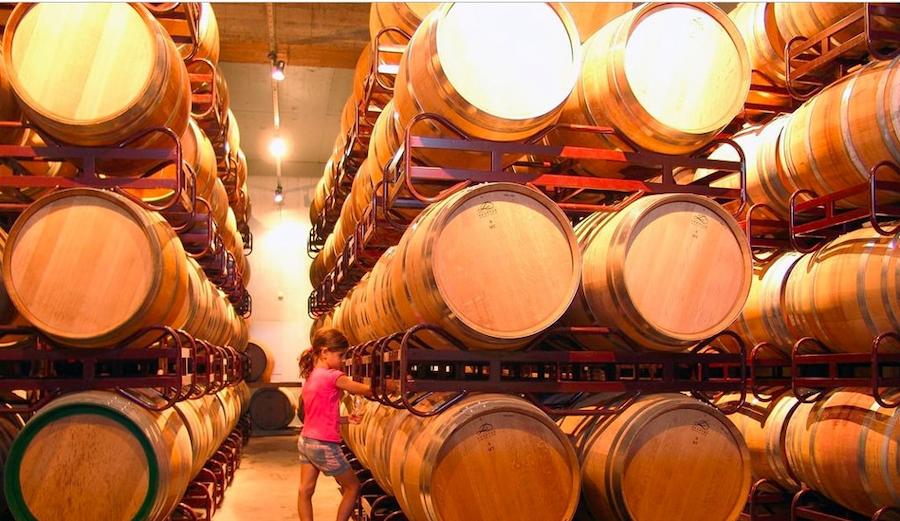
On Sunday, November 14th , wineries of Greece participate in the European Day of Wine Tourism with hundreds of other European wineries and invite you to celebrate with them.
Visitors of wineries will have the opportunity to walk around wine regions, get to know Greek wine-producers, enjoy the scenery in beautiful vineyards, take a tour in wine production, maturation and ageing areas, try new and vintage wine and get an update on the fresh wines of this year’s harvest which has just been completed.
The European Day of Wine Tourism was established in 2009 and is annually celebrated on the second Sunday of November with the participation of wineries-members of the European Network of Wine Cities (RECEVIN) or Wine Tourism Networks.
Opening times: 11am – 5pm – Admission: free!
Cover photo: Douloufakis Winery
UPCOMING EVENTS
4th pelion gastronomy festival .
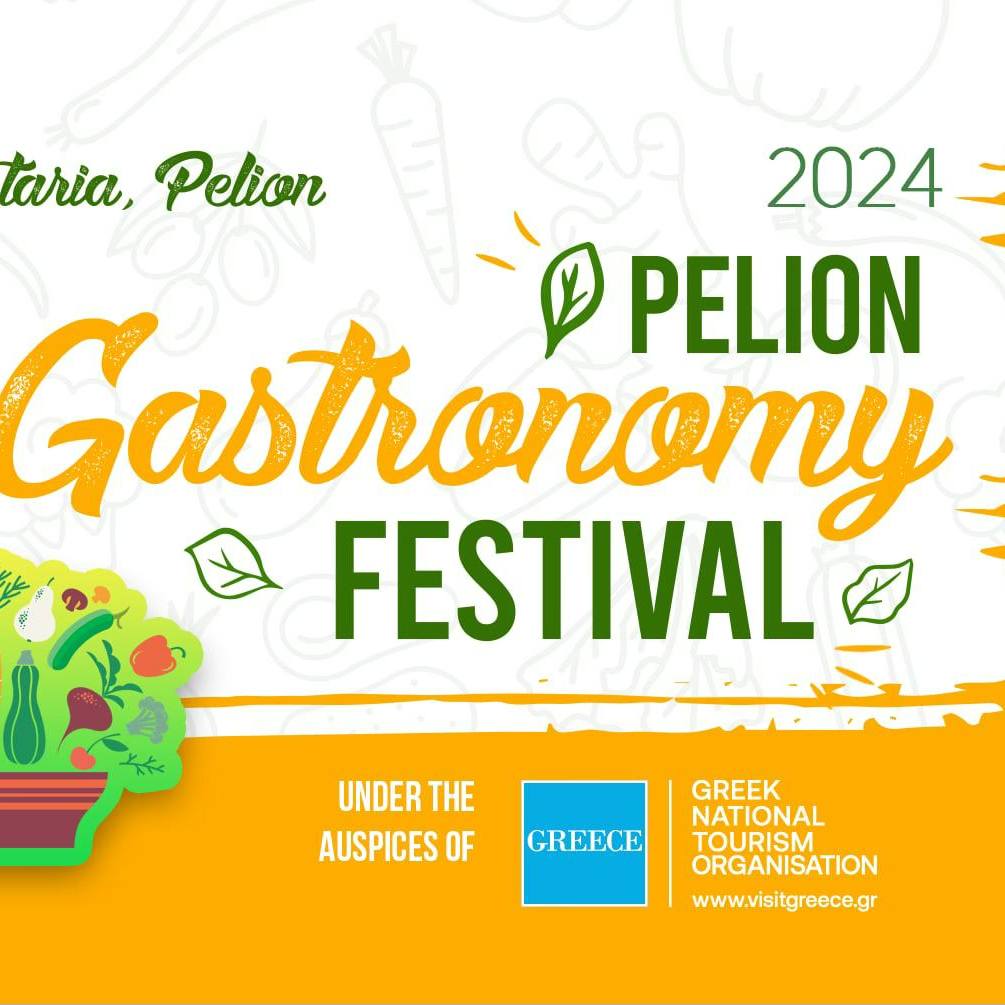
Festival of Peter and Paul Apostles, Spata
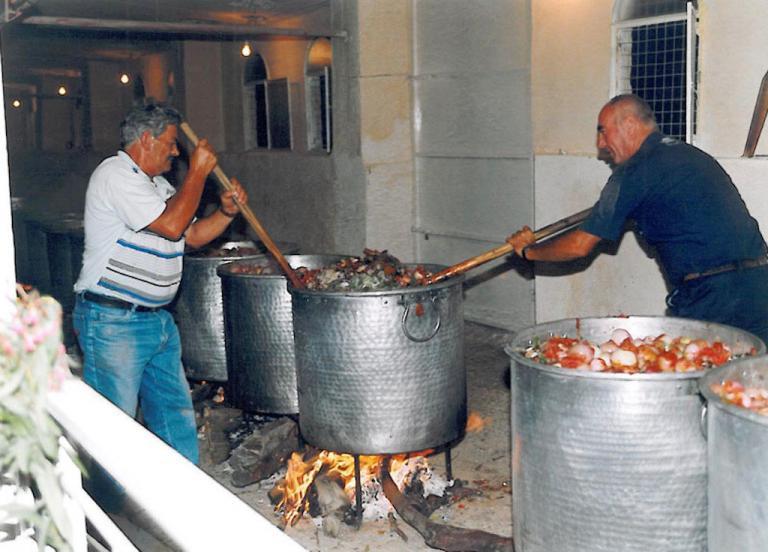
Tinos, Festival of the Holy Apostles
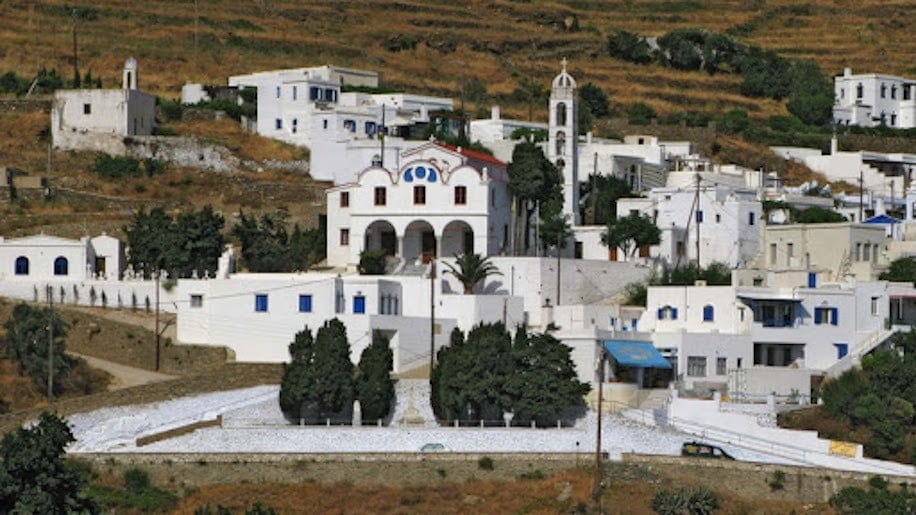
Alea Craft Beer Festival!

Tinos, Arnados, Festival of Aghii Anargyri
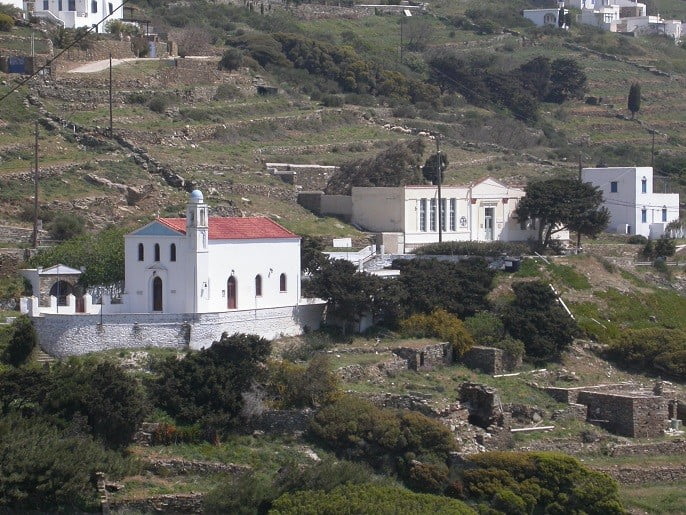
Paros, Naoussa, Fish Festival

Euboea, Chiliadou, Strapones, Squid Festival
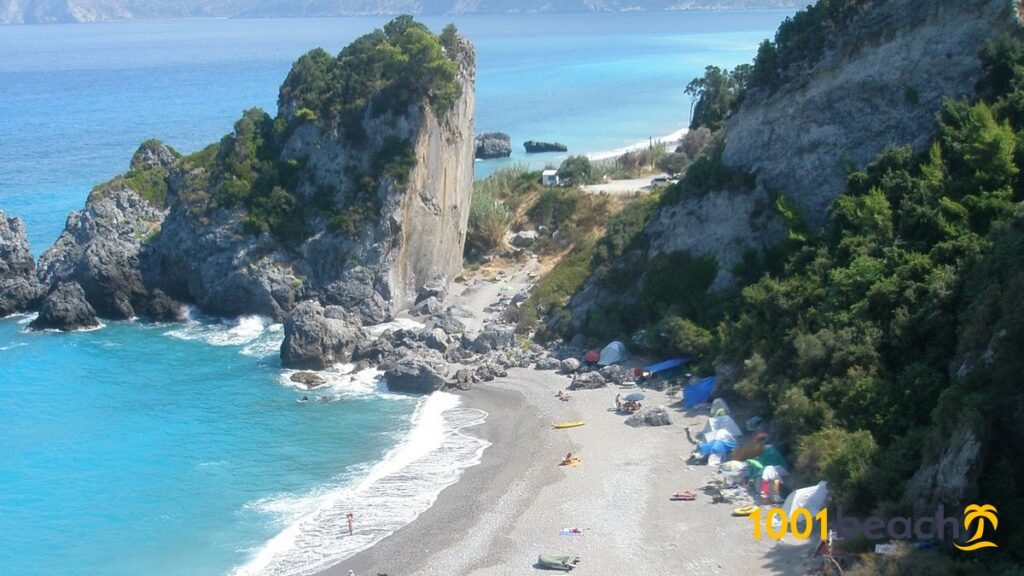
Tinos, Festival of the Monastery of the Sacred Heart
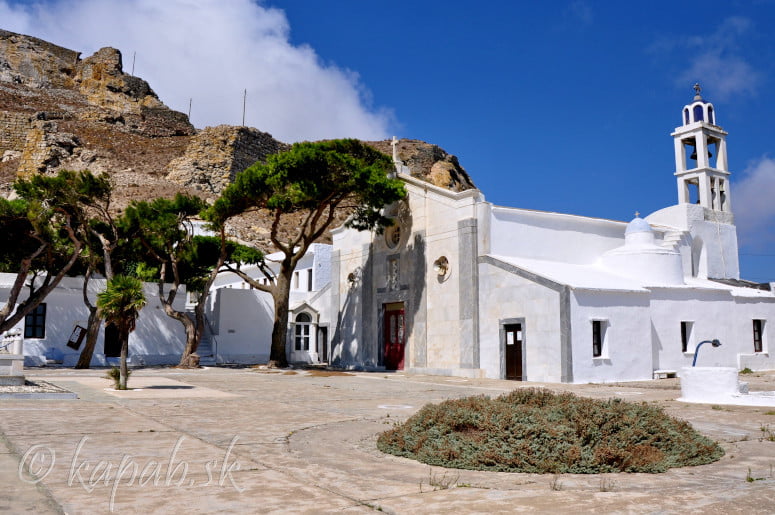
Crete, Lissos, Festival of Agios Kirykos

Paros, Kostos, Festival of Santa Marina
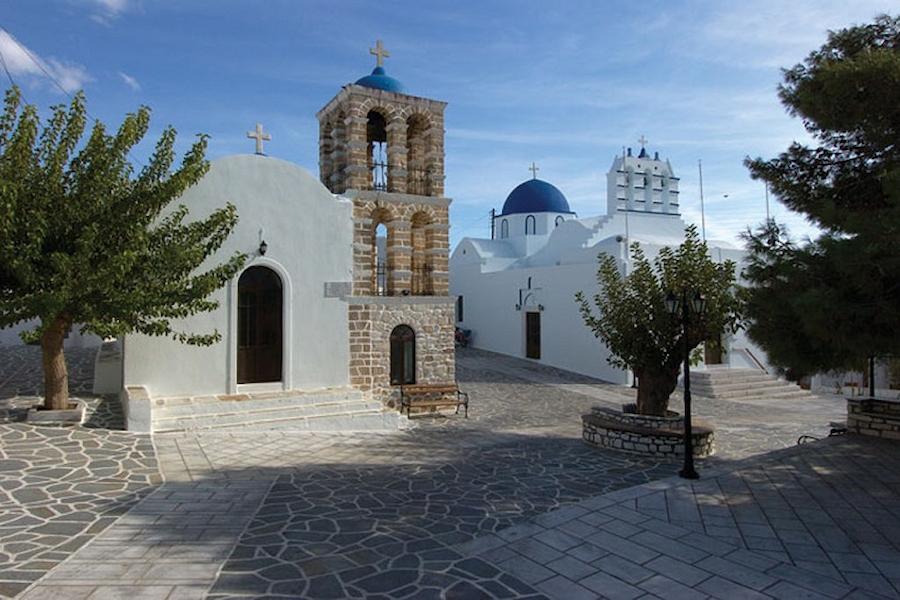
Sifnos, Festival of the Prophet Elias Apsilos

Sardine Festival in Skala Polichnitos- Lesvos
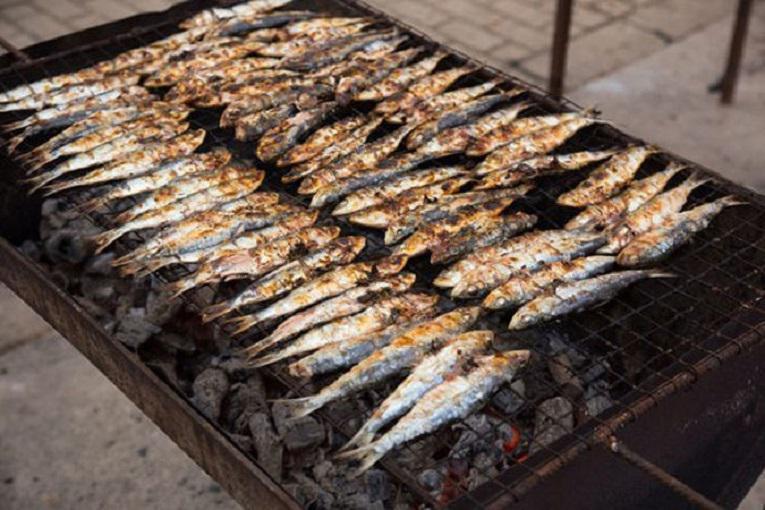
Subscribe to our Newsletter
- About Malaya Business Insight
- Advertisements
- 41st Anniversary Supplement
- 40th Anniversary Supplement
- 39th Anniversary Report
- 38th Anniversary Report
- Banking And Finance
- Market Markers
- Corporate Roundup
- Marketing Board
- Shipping And Transportation
- International
- Motorsports
- Banking & Finance
- Infotech & Electronics
- Travel & Tourism
- Environment
- Supplements
- Entertainment
- Opinion of the day
- Column of the day
- Search for: Search Button


A grand display of Cebu’s sights, sounds, and taste welcomed over 600 global delegates of the inaugural UN Tourism Regional Forum on Gastronomy Tourism for Asia and the Pacific as it formally opened yesterday at The Marquee of Shangri-La Mactan.
Co-organized by the Philippine Department of Tourism (DOT), the UN Tourism, and the Basque Culinary Center, the event gathered participants from UN member-states, affiliate members, and tourism stakeholders from national and international organizations.
A first of its kind in Asia and the Pacific the forum seeks to become a platform to celebrate the power of gastronomy tourism by bringing together destinations and international experts in an exchange of knowledge and best practices, in order to fully harness the transformative power of gastronomy tourism, especially its benefits to local communities and the environment.
The Philippines holds the honor of hosting this inaugural UN Tourism forum, after its election as Chair of the Commission for East Asia and the Pacific during the 55th Meeting of the UNWTO Regional Commission for East Asia and the Pacific held in Cambodia last June 16, 2023.
“We’re deeply honored by the confidence conferred upon our nation by United Nations Tourism and its member states to host this inaugural global event that brings together ministers, heads of delegation, heads of mission, experts, stakeholders, enthusiasts from over 40 countries from around the world and Asia Pacific to celebrate gastronomy, to develop and promote tourism, and to cultivate the symbiotic relationship of these two sectors that assures their and our mutual success,” Tourism Secretary Christina Garcia Frasco said.
In his speech, UN Tourism Secretary-General Zurab Pololikashvili lauded the leadership of Tourism Secretary Christina Garcia Frasco for hosting the inaugural event, noting the warm welcome he received on his first visit to Cebu.
“This event here is a historical day because we are celebrating the first time-ever gastronomy forum in the region, and it’s not only gastronomy, it’s culture,” he said.
Polikashvili said that under his helm, he wants to leave a legacy to the organization and among his proposals is to establish an educational gastronomy center in the Philippines, particularly in Cebu as the country hosts the prestigious event for the first time. “We know that education is the top priority for your tourists, and we will support this initiative to help the progress of UN Tourism,” he added.
BCC Director of Masters and Courses Idoia Calleja, meanwhile emphasized gastronomy tourism’s massive potential in promoting community’s well-being, transforming societies’ socio-economic needs, saying “Gastronomy is one of the sectors that show the way of life. When we travel, we like to discover the local cuisines, destinations, restaurants, the taste, products, traditions, and to be able to have an authentic experience,” citing how many destinations have brought gastronomy front and center, driving employment and business opportunities for the entire value chain.
DA to blacklist 4 importers of rice, fish and sugar
Agri testing facility ready by jan ’25, timor-leste grants ph request for teves extradition, reforestation for the birds and turtles of aboitiz cleanergy park, guo unmasked as a chinese masquerading as a filipino.


IMAGES
COMMENTS
Gastronomic tourism is also an economic driver for destinations. It generates revenue for local businesses, including restaurants, cafes, food markets, and small-scale producers. By attracting food-loving travelers, destinations can support local entrepreneurs and contribute to the growth of the local economy.
We're the world's oldest and largest organization focused on the development and promotion of food and beverage tourism (a.k.a. culinary tourism and gastronomy tourism). We work with destination marketers and their stakeholders to facilitate the discovery and appreciation of unique culinary cultures by travelers.
In essence, culinary tourism centers on the food itself, including its taste, presentation, and culinary techniques, while gastronomic tourism emphasizes culinary expressions as a means to understanding culture and lifestyle.For example, eating Dutch food is a way of getting immersed in Amsterdam culture or tasting berlin food specialties is a ...
Definition and Scope. Culinary tourism, also known as food tourism or gastronomy tourism, taps into the desire to explore a culture through its flavors. Your culinary adventures can range from local cooking courses to winery tours, encompassing any travel experience where the primary goal is to discover new tastes and food traditions.
Culinary tourism or food tourism or gastronomy tourism is the exploration of food as the purpose of tourism. ... June 10, 2017, was the first annual National Food Tour Day, celebrating food tourism around the world. The World Food Travel Association introduced World Food Travel Day on April 18, ...
Gastronomy. Gastronomy is about much more than food. It reflects the culture, heritage, traditions and sense of community of different peoples. It is a way of promoting understanding among different cultures, and of bringing people and traditions closer together. Gastronomy tourism is also emerging as an important protector of cultural heritage ...
The food tourism industry is creative and aware of the interests of travellers. Best of all, it is a democratic and flexible way of travelling. Nowadays, you can easily explore a gastronomic culture in different ways: in the countryside or in the city, individually or in groups, with luxury, with adventure.
The World Tourism Organization (UNWTO), the Basque Culinary Center (BCC), the Japan Tourism Agency and the Nara Prefectural Government organized the 7th UNWTO World Forum on Gastronomy Tourism on 12-15 December 2022, in Nara, Japan. Under the theme 'Gastronomy Tourism for People and Planet: Innovate, Empower and Preserve', the Forum focused ...
The Guidelines for the Development of Gastronomy Tourism have been developed by UNWTO and the Basque Culinary Center (BCC), a UNWTO affiliate member, as part of its long-term collaboration. The guidelines aim to serve as a practical toolkit to support the development of gastronomy tourism in destinations by providing recommendations on key aspects such as planning and management by national ...
For many destinations, food-making as well as wine-making represent an integral part of their history and identity and have become the key element in the nation's brand image. Gastronomy and wine tourism represents an opportunity to revitalize and diversify tourism, promote local economic development, involve many different professional sectors and bring new uses to the primary sector.
Gastronomic tourism, based on the concept of community-based tourism is the pursuit of unique and memorable eating and drinking experiences. As Audra Morrice...
Gastronomic tourism draws from these psychosocial factors. The United Nations World Travel Organization (UNWTO) defines gastronomy tourism as a "type of tourism activity which is characterized by the visitor's experience linked with food and related products and activities while travelling.". Gastronomic tourism can include venues like ...
Gastronomy tourism has emerged as an important protector of cultural heritage, helping create economic opportunities, including the creation of jobs, most notably in rural destinations. However, as it stands, we are using our lands, soils, oceans and forests in largely unsustainable ways. We need to be more careful about how we use our natural ...
The UN General Assembly adopted on 21 December 2016 its resolution A/RES/71/246 and designated 18 June as an international observance, Sustainable Gastronomy Day. The decision acknowledges ...
How to Keep Up with the Next Generation of Food Tourism Gastronomic tourism predictions & preparation, post-COVID. Let us take you back to a time where tourists could wander off the beaten path and onto the rugged cobblestones of a road-less-travelled neighbourhood, exploring the bustling local markets through a delight of aromas and friendly unfamiliar faces during an authentic food and ...
Every year on September 27 th the World Tourism Day is celebrated. The day was established in 1980 by the World Tourism Organization (UNWTO). Its purpose is to promote the value of tourism (BMUV, 2022). Every year the day has a new theme. This year it is 'Rethinking Tourism', referring to the still lasting crisis. Restarting the tourism ...
View Photos. Share this tour. +7 495 166-72-69. [email protected]. Mon - Sun 10.00 - 18.00.
Moscow welcomes the Tastes of Russia gastronomic festival. Muscovites and visitors to the capital are invited on a real culinary adventure. From 7 to 16 July, you'll be able to explore the diversity and flavour of Russia's national gastronomic traditions, and buy produce from more than 70 regions of the country with opportunities to take part in cookery master classes.
The Gastronomic Impact on Tourism Dynamics. With the quest for authenticity steering modern tourism trends, culinary experiences have become crucial elements shaping travellers' perceptions and memories of destinations. It's not about extravagant dining; it's about immersing in diverse culinary adventures, capturing the essence of places ...
Contact Data Michelle Rash RLF Communications 336-553-1733 (office) 336-823-5501 (mobile)
GASTRONOMY TOURS HELPS TRAVELERS FIND AND VISIT ARTISANAL AND MODERN PRODUCERS OF GASTRONOMIC PRODUCTS, WITNESS THE PRODUCTION PROCESS, PARTICIPATE IN FOOD-RELATED ACTIVITIES AND DISCOVER THE CULINARY CUSTOMS AND TRADITIONS OF GREECE. ... World Olive Tree Day - the 26th of November. The olive tree is revered as a blessed symbol of peace and ...
First UNWTO World Forum on Food Tourism. 2nd UNWTO World Forum on Gastronomy Tourism. Second Global Report on Gastronomy Tourism. Contacts: UNWTO Media Officer Rut Gomez Sobrino. Tel: (+34) 91 567 81 60 / [email protected]. UNWTO Communications & Publications Programme. Tel: (+34) 91 567 8100 / Fax: +34 91 567 8218 / [email protected].
Gastronomy tourism practices allow for the tourist to foster a reconnection with food sources and information. In a society of convenience where so many have lost their connection to the sources of food, this ability to reconnect is extremely valuable. ... Most times, after a day's helping with the farming, local food dishes will be offered ...
Moscow, Dec. 03, 2021 (GLOBE NEWSWIRE) -- Moscow will host the Taste of the Arctic International Gastronomic Festival of northern cuisine within the frames of Russia's Chairmanship of the Arctic ...
Tourism Secretary Christina Garcia Frasco is determined to put the Philippines on the global gastronomy destination map following her joint effort with the United Nations Tourism this week in ...
On, June 26, 2024, the UN Tourism and the DOT launched the first UN Tourism Tourism Regional Forum on Gastronomy in the Asia-Pacific in Cebu.
Being home to IloIlo, a UNESCO city of Gastronomy in 2023, it's no surprise that the first-ever United Nations Tourism Regional Forum on Gastronomy Tourism for Asia and the Pacific is being ...
On Sunday, November 14th, wineries of Greece participate in the European Day of Wine Tourism with hundreds of other European wineries and invite you to celebrate with them. ... Gastronomy Tours helps travelers find, book, visit producers of gastronomic products. Explore activities and trips related to gastronomy. +30 210 6036009
A grand display of Cebu's sights, sounds, and taste welcomed over 600 global delegates of the inaugural UN Tourism Regional Forum on Gastronomy Tourism for Asia and the Pacific as it formally opened yesterday at The Marquee of Shangri-La Mactan.